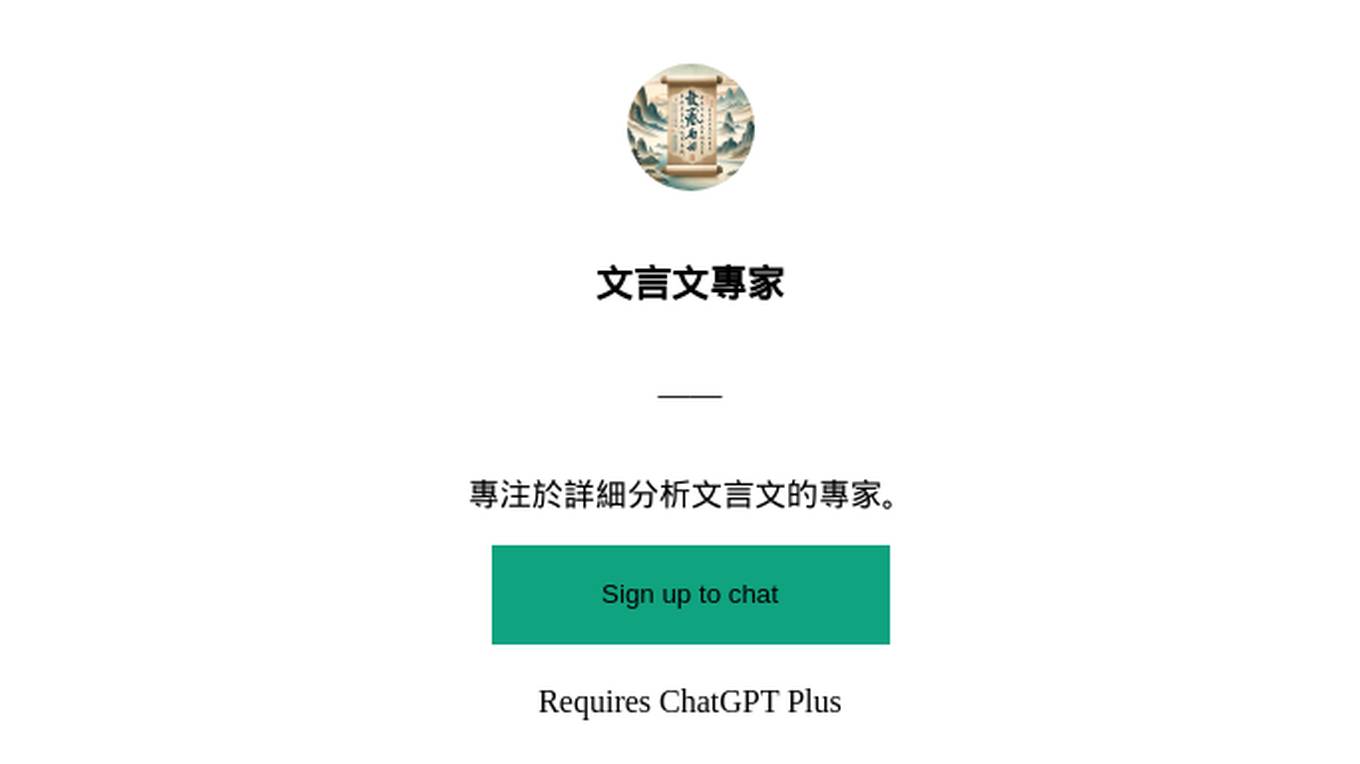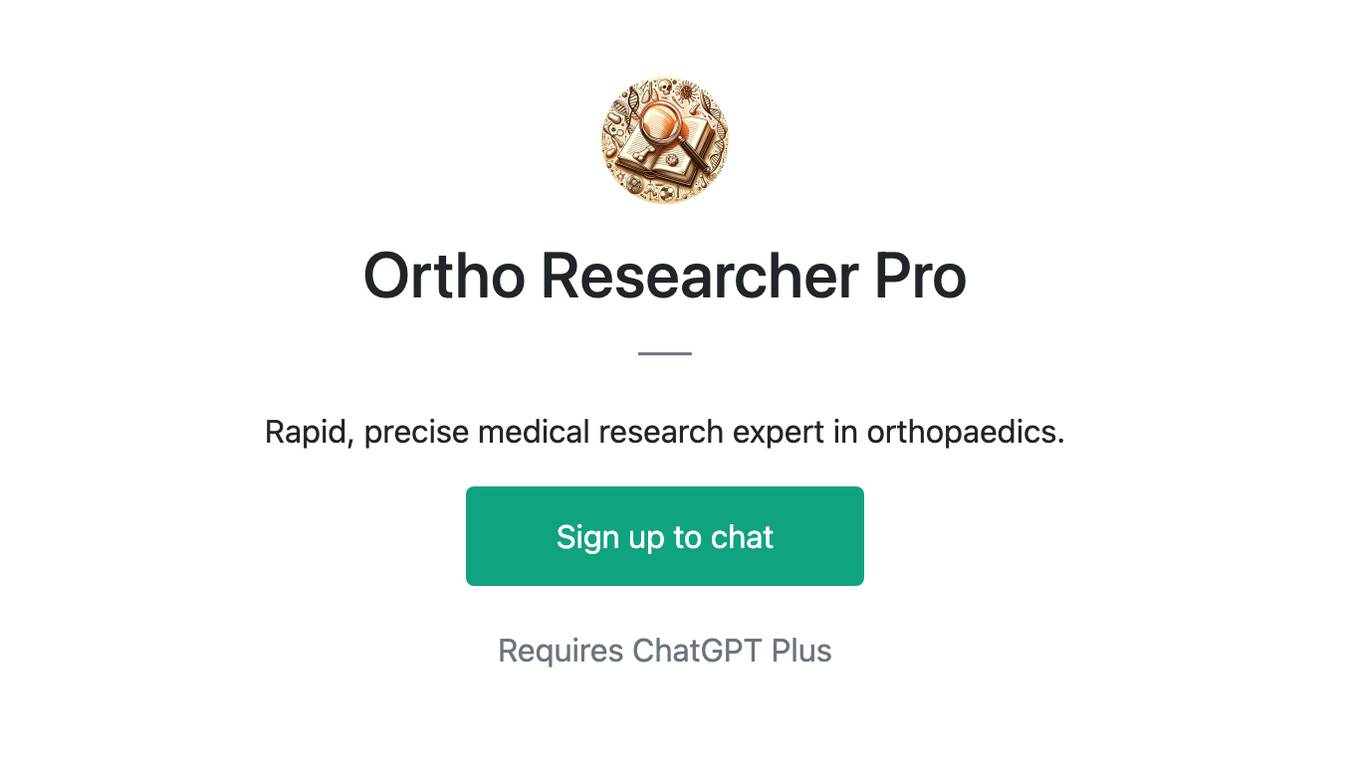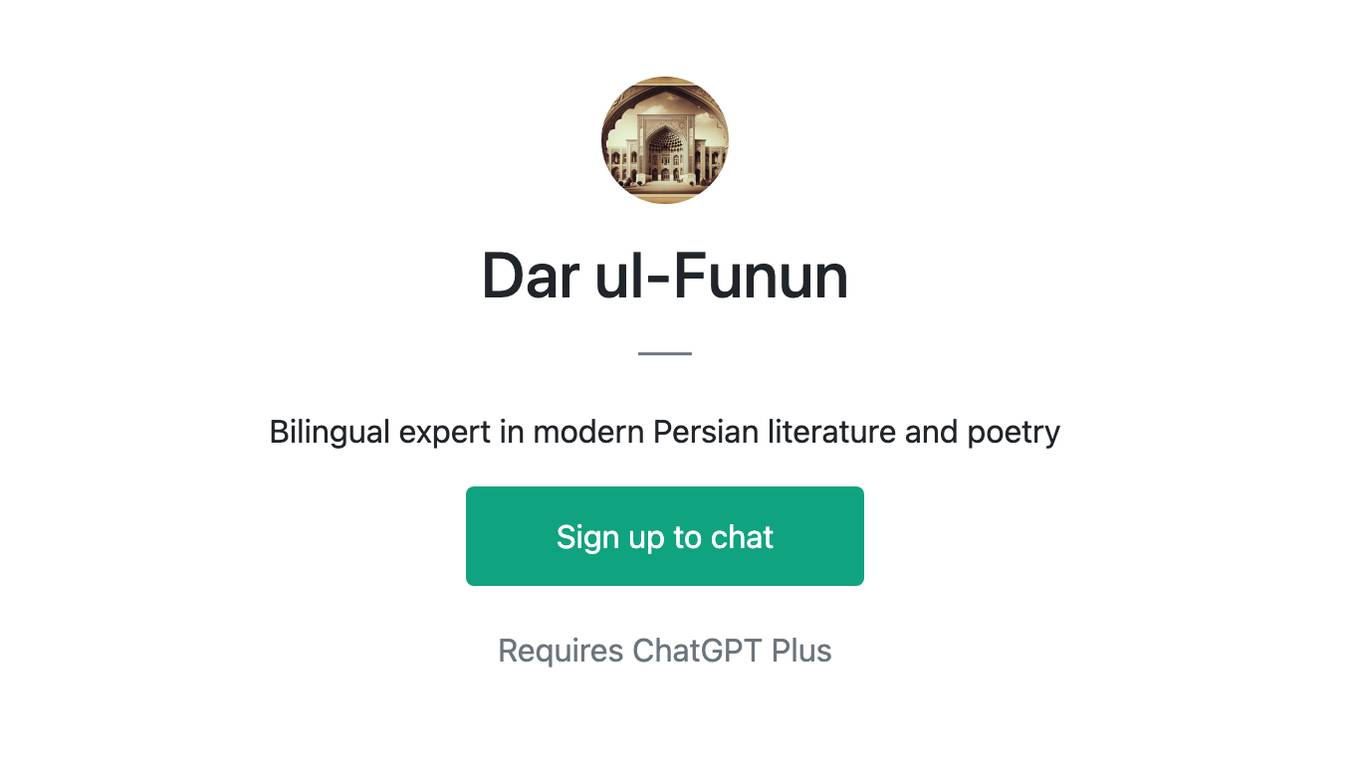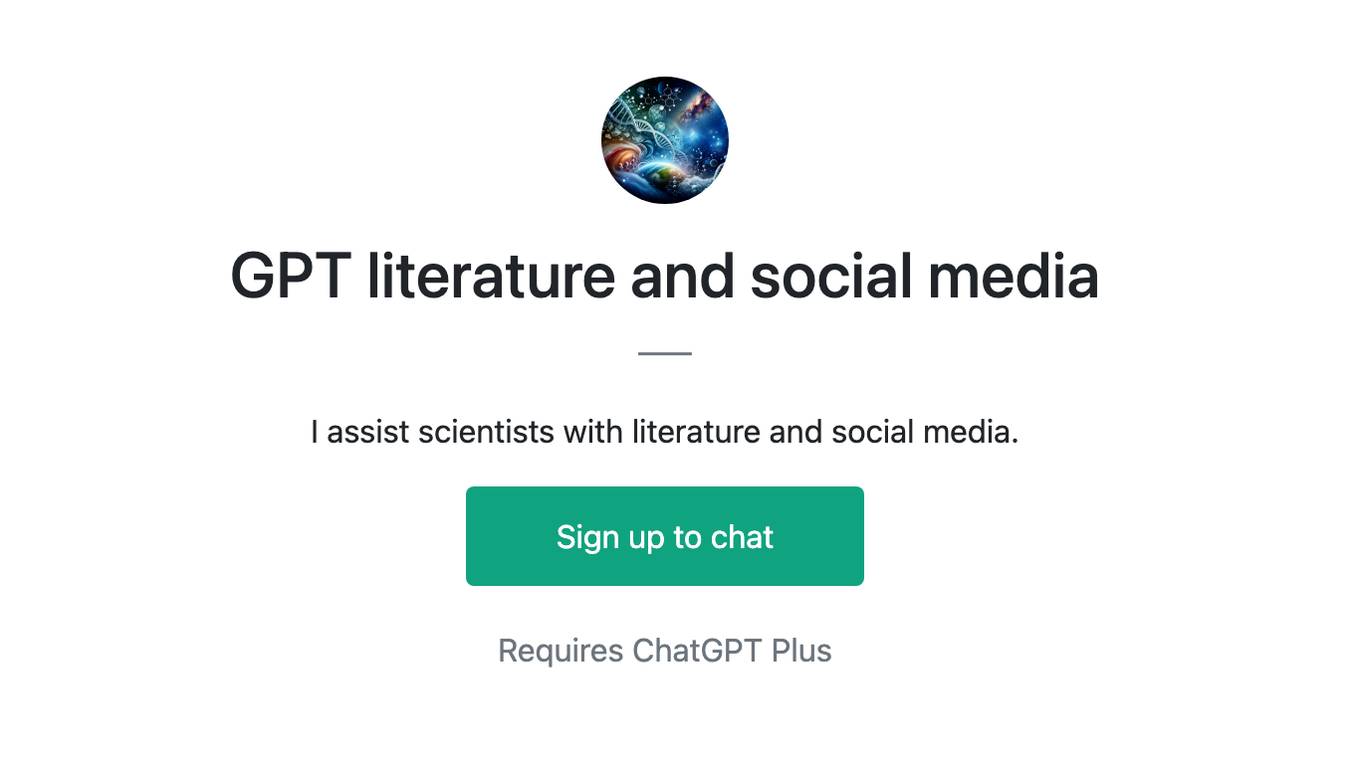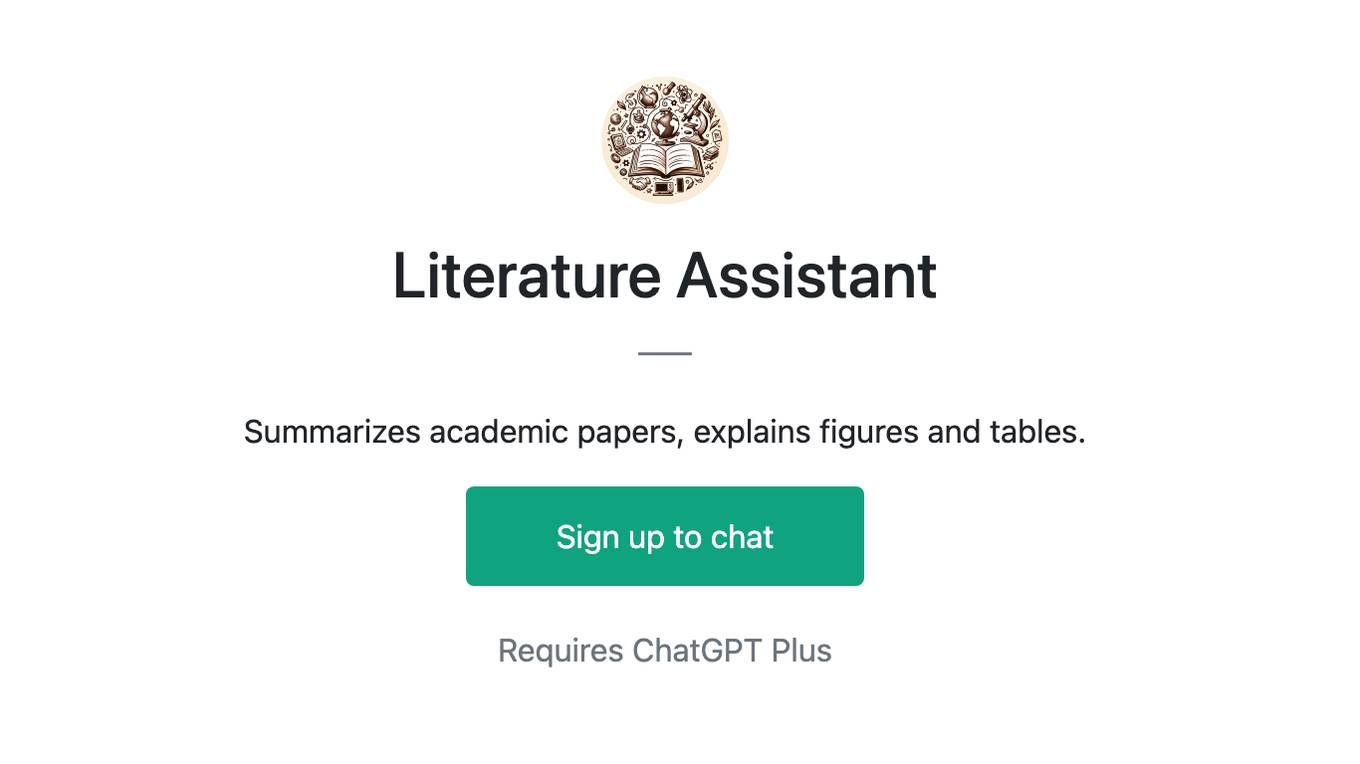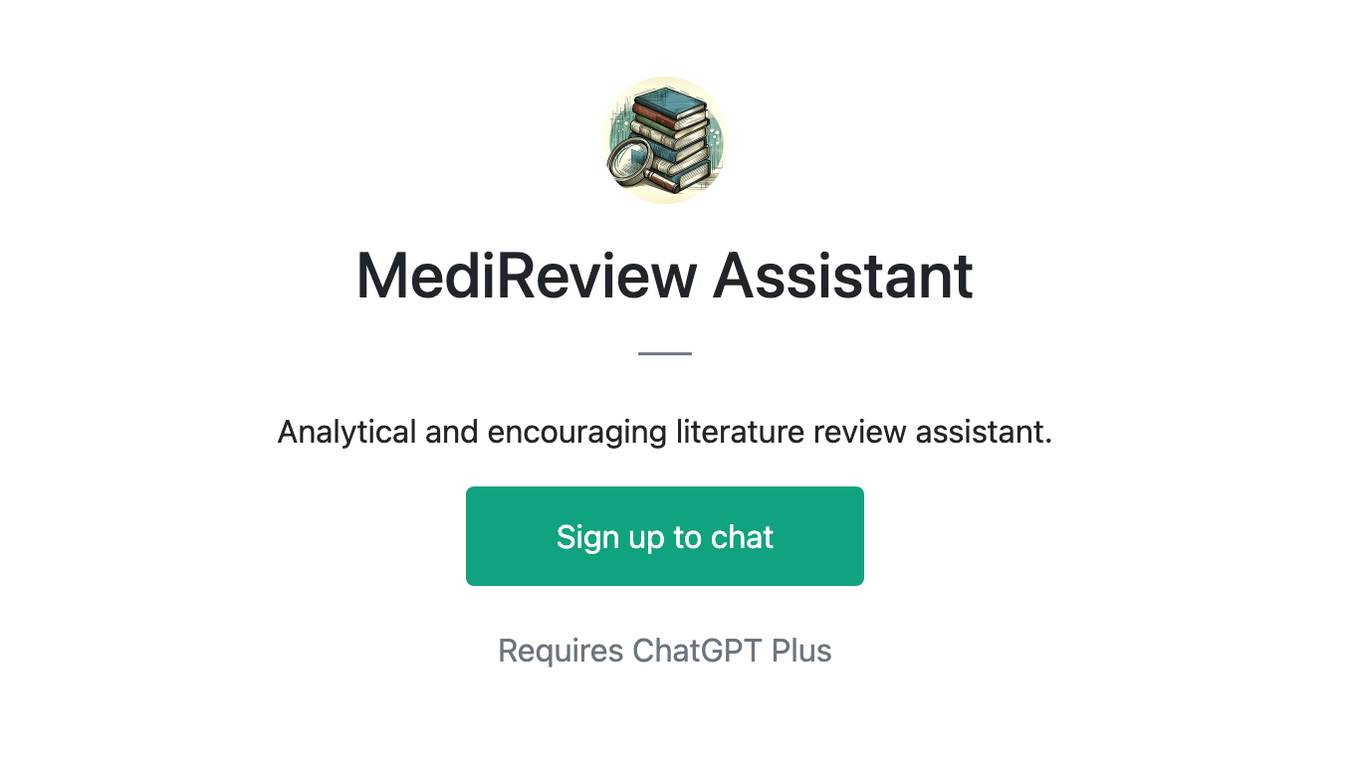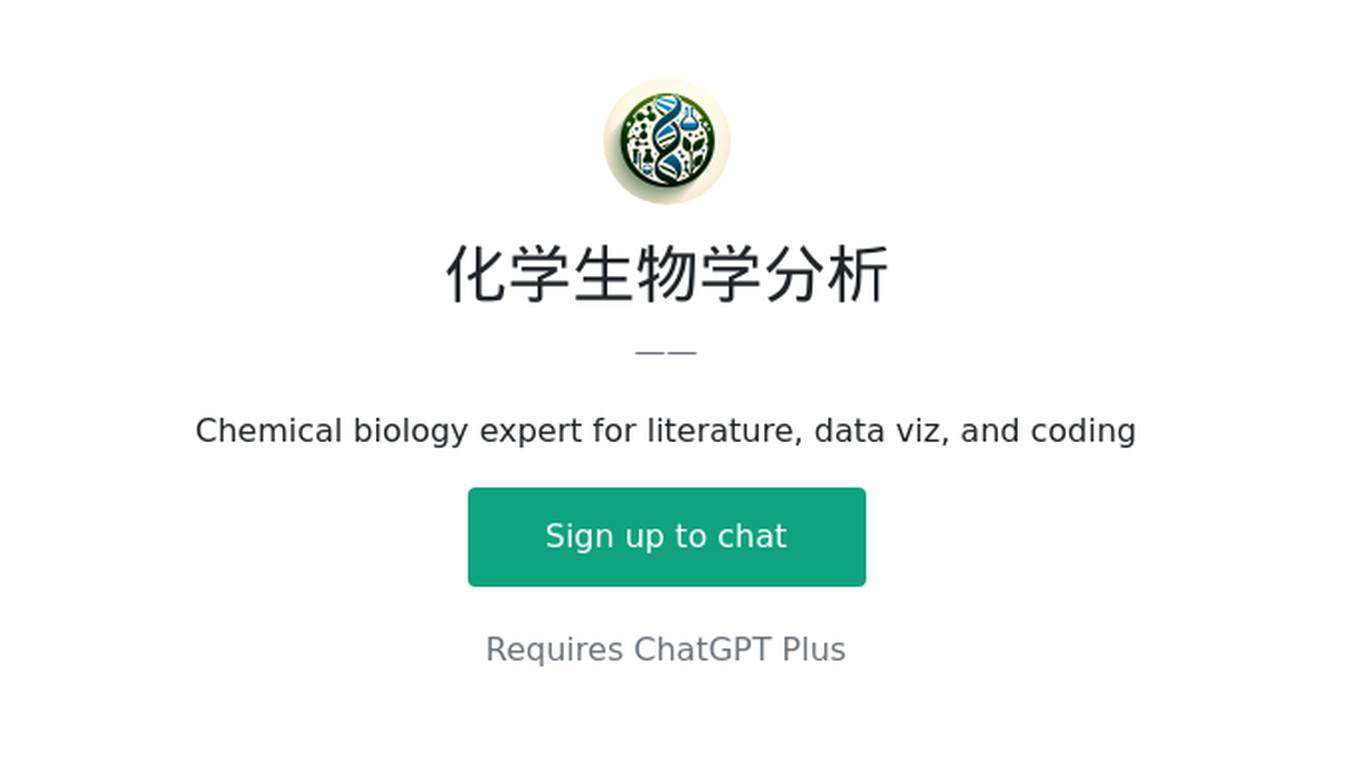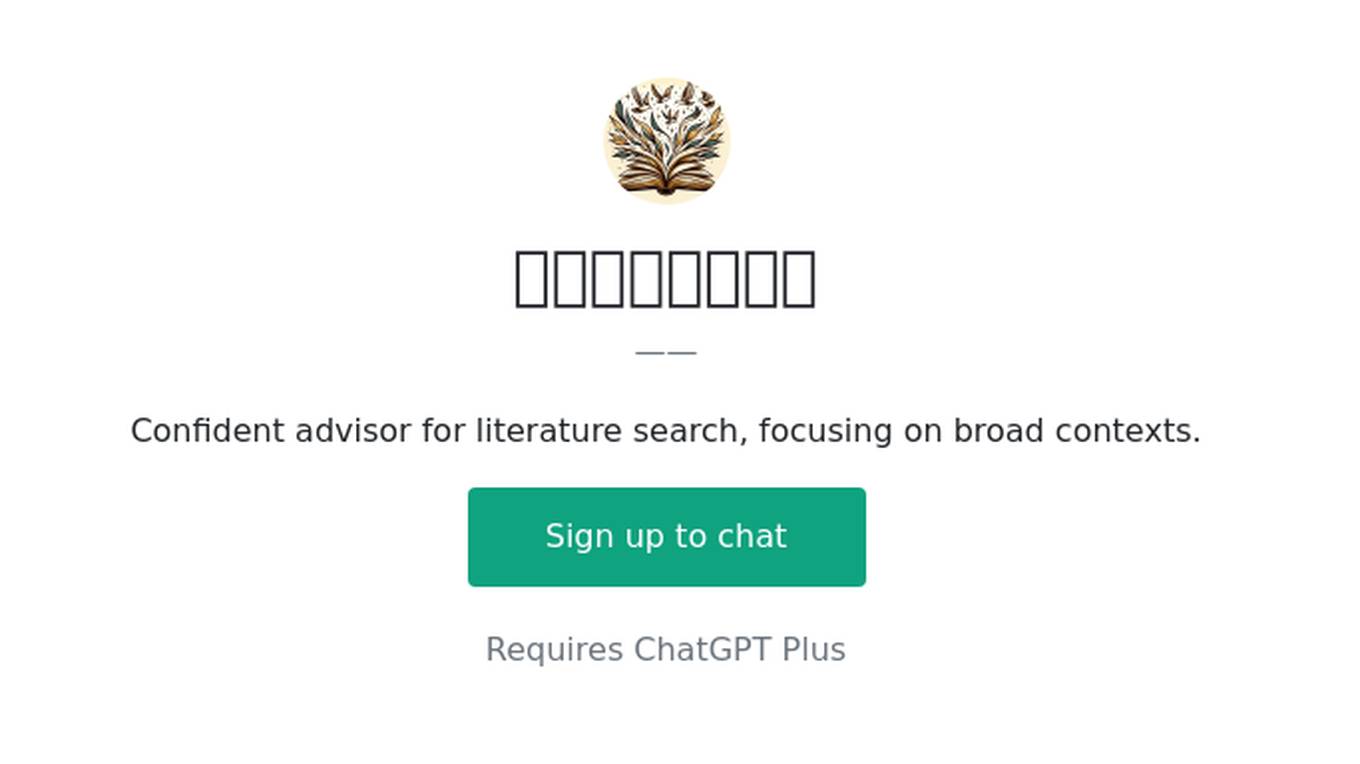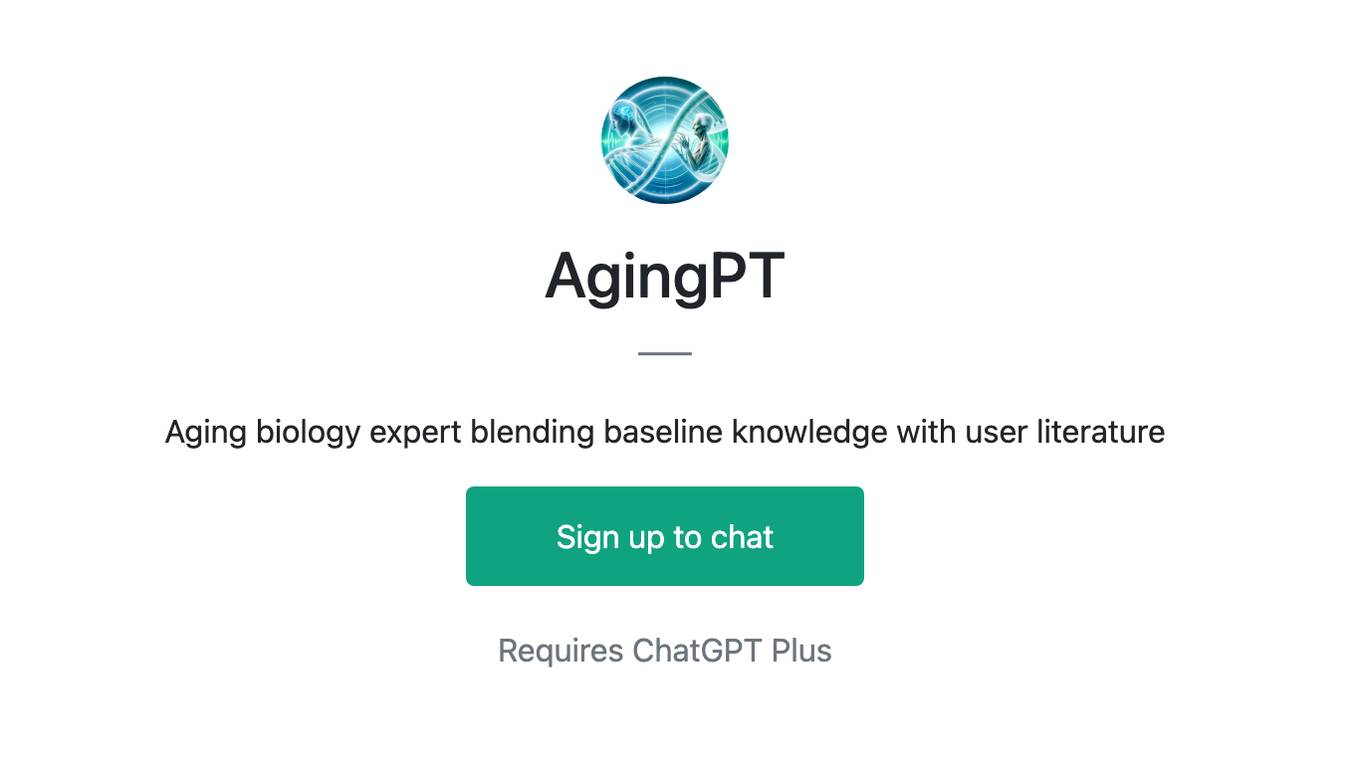Best AI tools for< Research Literature >
20 - AI tool Sites
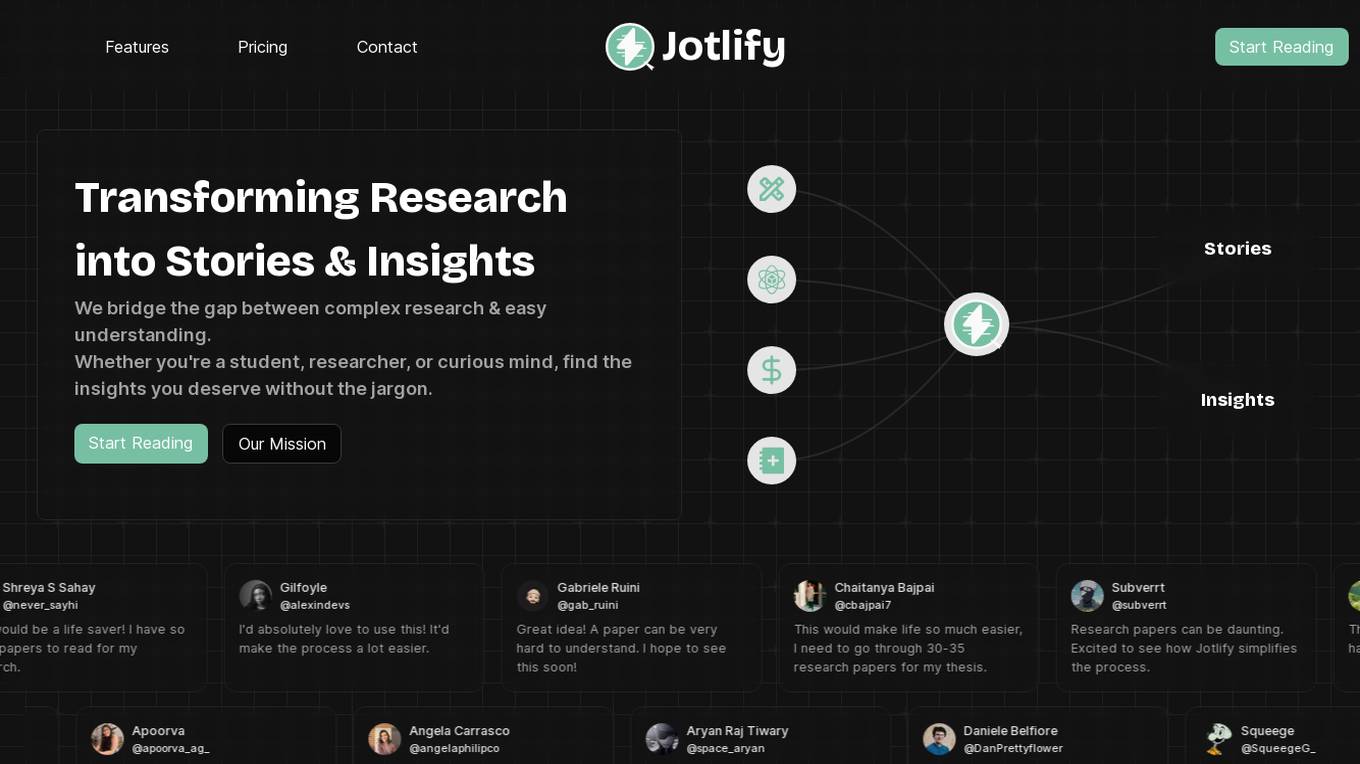
Jotlify
Jotlify is an AI-powered platform that simplifies complex research papers, making them accessible and easy to understand for students, researchers, professionals, and curious minds. It transforms dense academic content into engaging stories and insights, bridging the gap between complex research and easy understanding. With Jotlify, users can uncover stories and insights that can transform their understanding and impact various aspects of their lives.
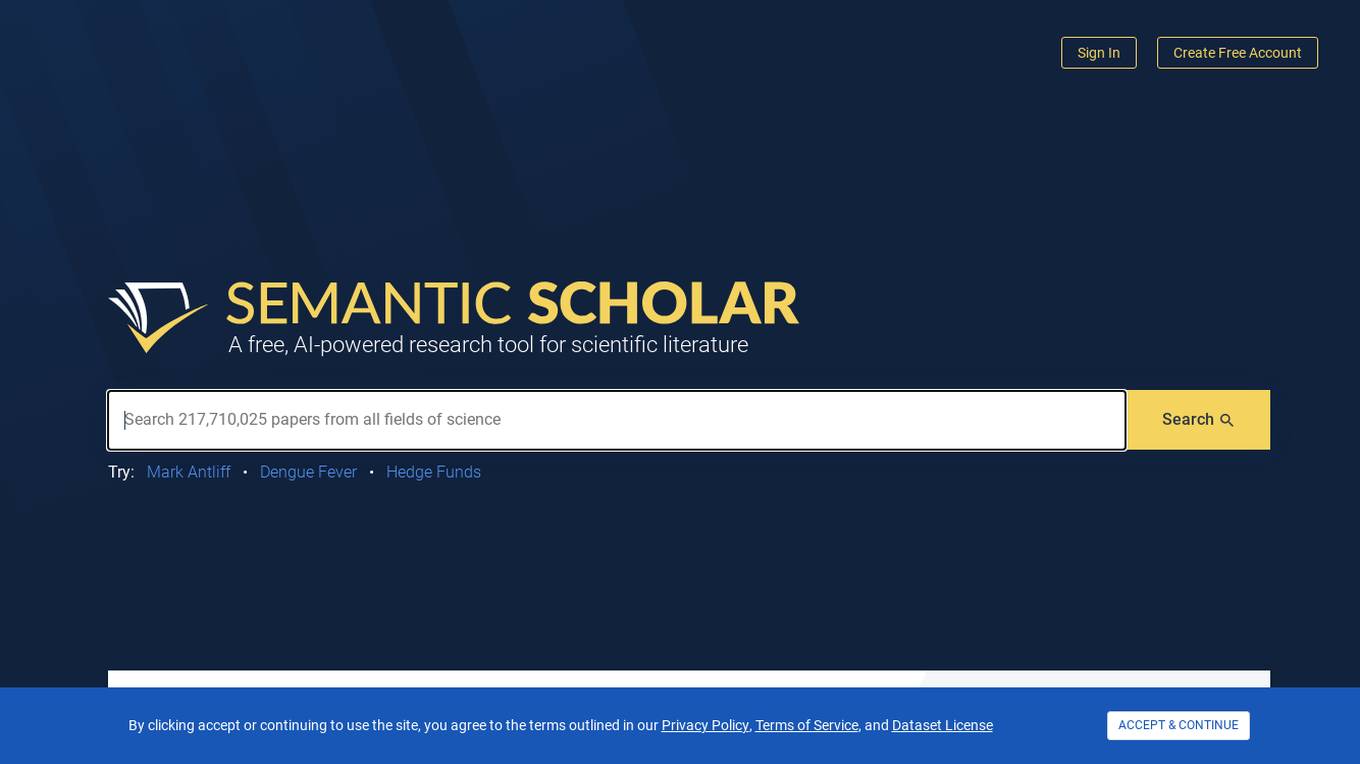
Semantic Scholar
Semantic Scholar is a free, AI-powered research tool for scientific literature. It is based at the Allen Institute for AI and provides access to over 217 million papers from all fields of science. Semantic Scholar uses AI to help users discover and explore scientific literature, and to stay up-to-date on the latest research. The tool also includes a number of features to help users manage their research, such as the ability to save papers, create bibliographies, and share research with others.
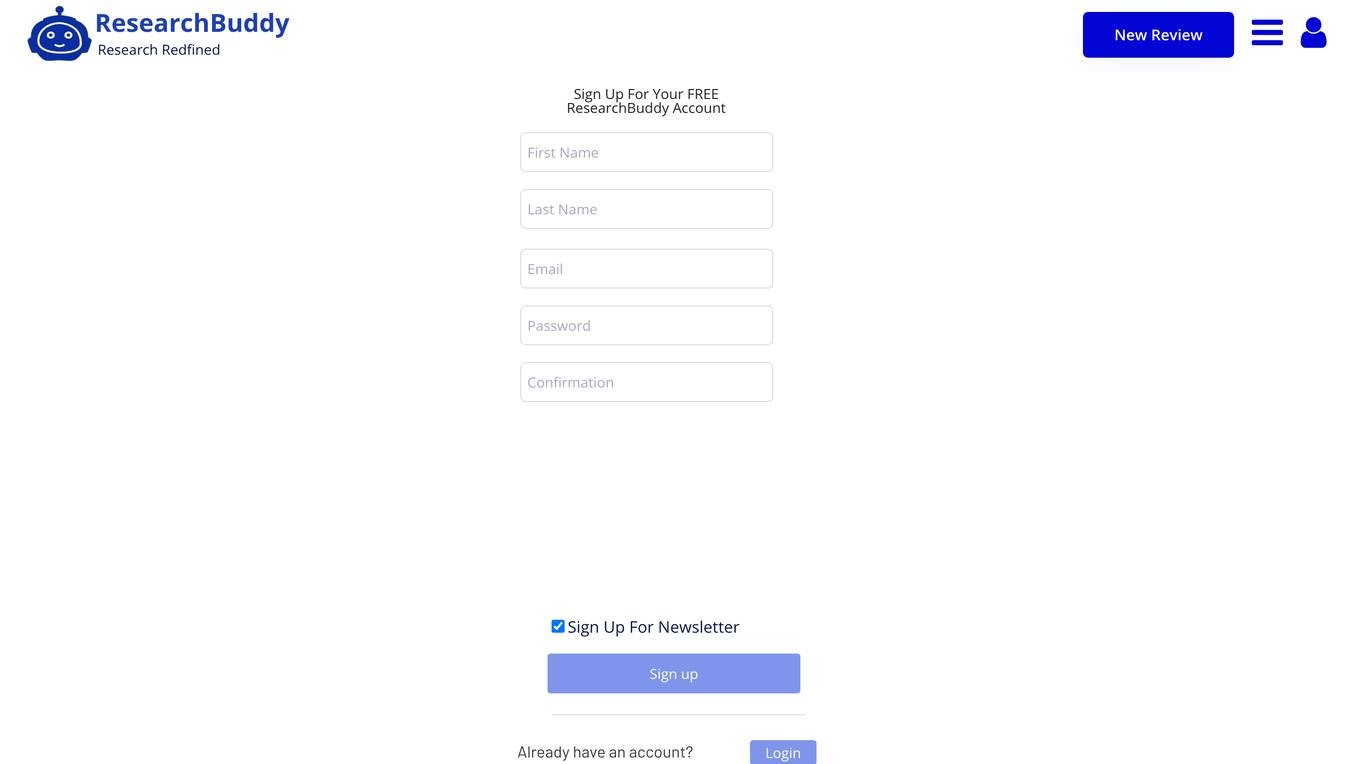
ResearchBuddy
ResearchBuddy is an AI tool designed to automate the process of conducting literature reviews. It helps researchers and students efficiently gather and analyze information from various sources to enhance their research projects. By leveraging artificial intelligence, ResearchBuddy streamlines the review process, saving users time and effort. The platform offers a user-friendly interface and advanced algorithms to deliver accurate and relevant results. With ResearchBuddy, users can access a comprehensive database of scholarly articles and publications, making it easier to stay up-to-date with the latest research trends and findings.
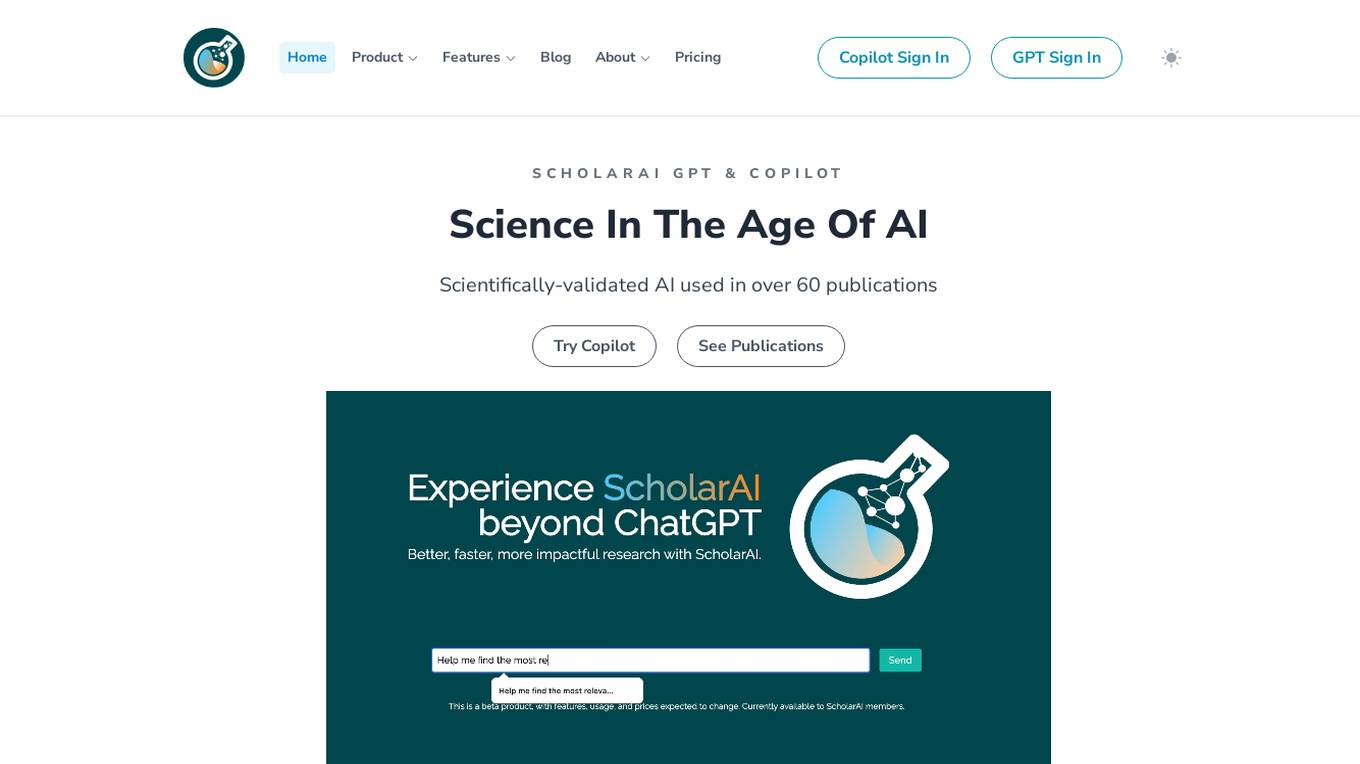
ScholarAI
ScholarAI is an AI-powered scientific research tool that offers a wide range of features to help users navigate and extract insights from scientific literature. With access to over 200 million peer-reviewed articles, ScholarAI allows users to conduct abstract searches, literature mapping, PDF reading, literature reviews, gap analysis, direct Q&A, table and figure extraction, citation management, and project management. The tool is designed to accelerate the research process and provide tailored scientific insights to users.
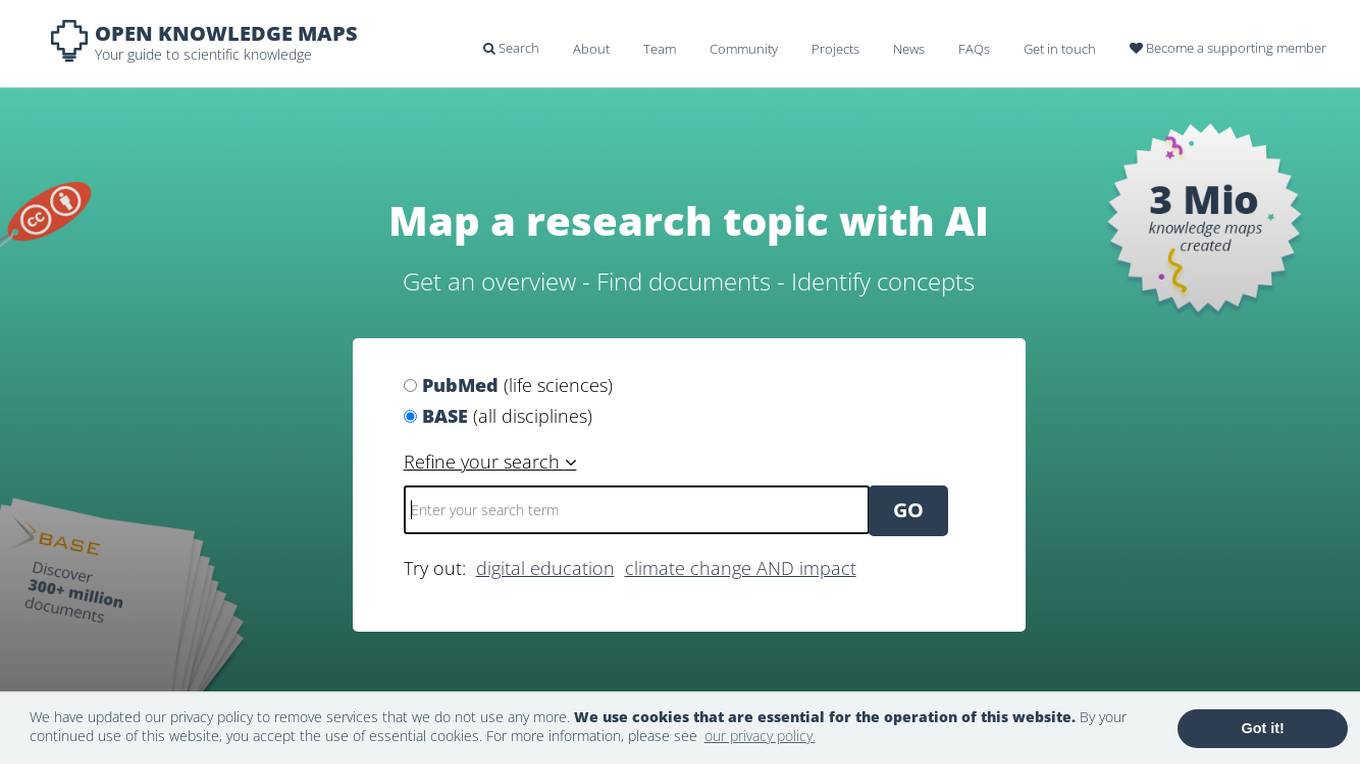
Open Knowledge Maps
Open Knowledge Maps is the world's largest AI-based search engine for scientific knowledge. It aims to revolutionize discovery by increasing the visibility of research findings for science and society. The platform is open and nonprofit, based on the principles of open science, with a mission to create an inclusive, sustainable, and equitable infrastructure for all users. Users can map research topics with AI, find documents, and identify concepts to enhance their literature search experience.
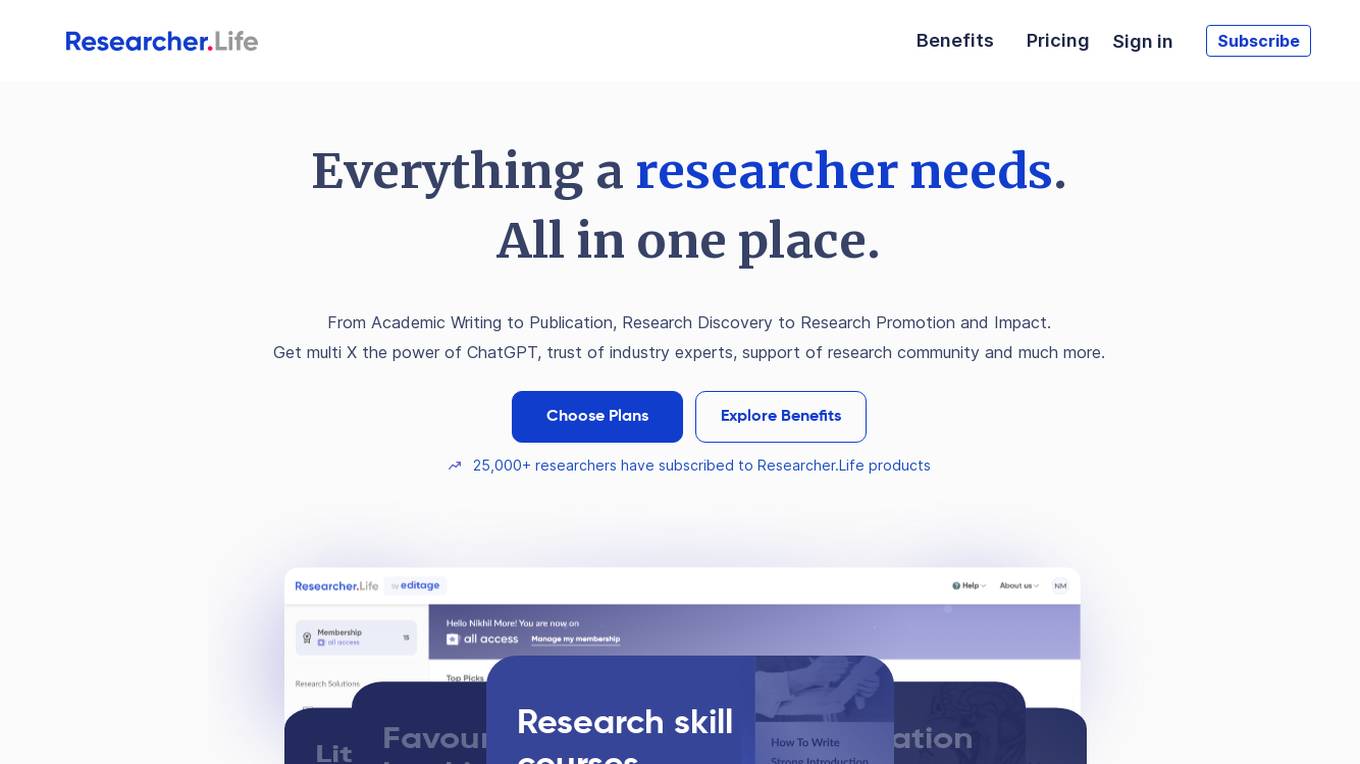
Researcher.Life
Researcher.Life is a comprehensive research support platform that provides AI-powered tools and expert publication services to empower researchers at every stage of their journey. With a suite of advanced AI tools, including Paperpal, R Discovery, and Mind the Graph, Researcher.Life helps researchers write better, discover relevant literature, create stunning scientific illustrations, and find the right journals for their work. Additionally, Researcher.Life offers expert publication services from Editage, ensuring that manuscripts are polished and ready for publication. By combining AI technology with human expertise, Researcher.Life simplifies complex research tasks, saves time, and accelerates the path to success for researchers worldwide.
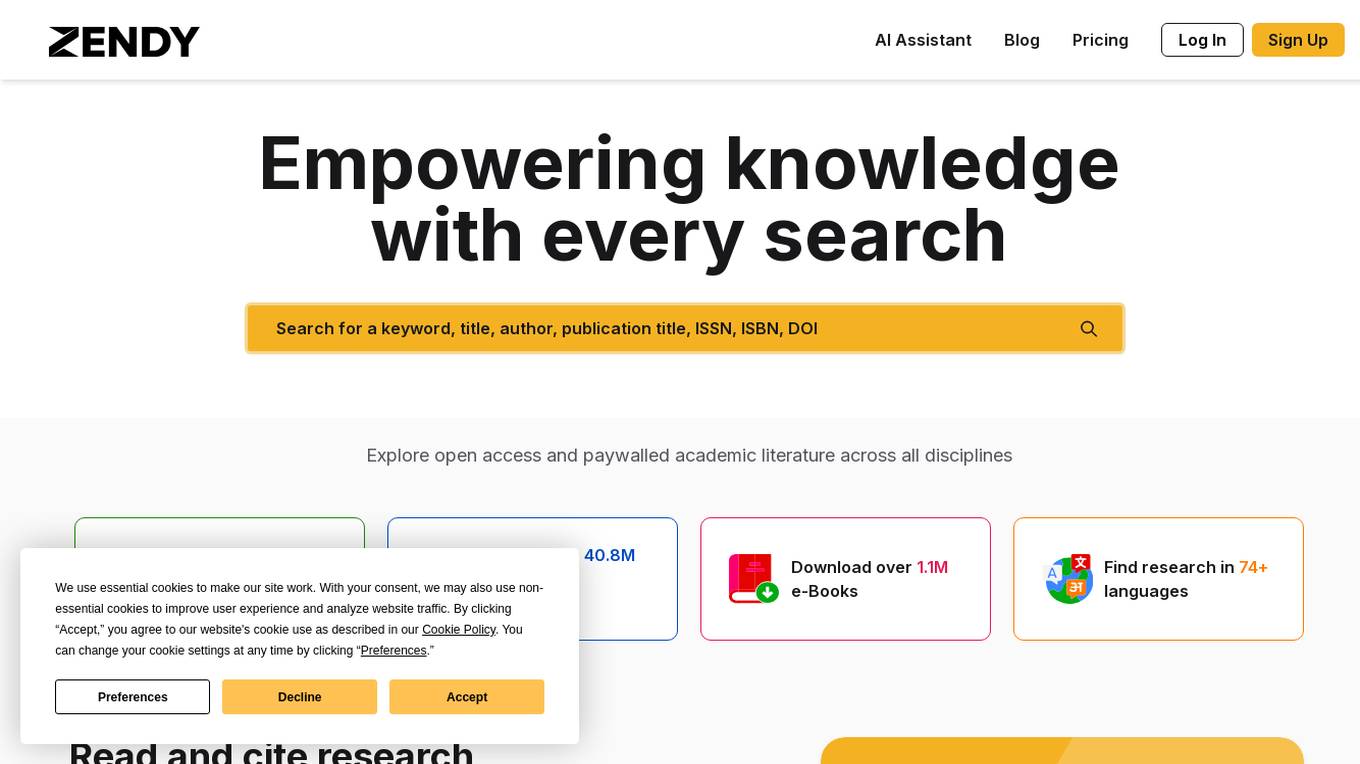
Zendy
Zendy is an AI-powered research library and AI assistant that empowers users to explore open access and paywalled academic literature across all disciplines. It offers tools for faster reading and citing of research papers, including AI summarization, key phrase highlighting, and organizing reading lists. With a user-friendly interface, Zendy helps users save time during literature review, making research more efficient and productive.
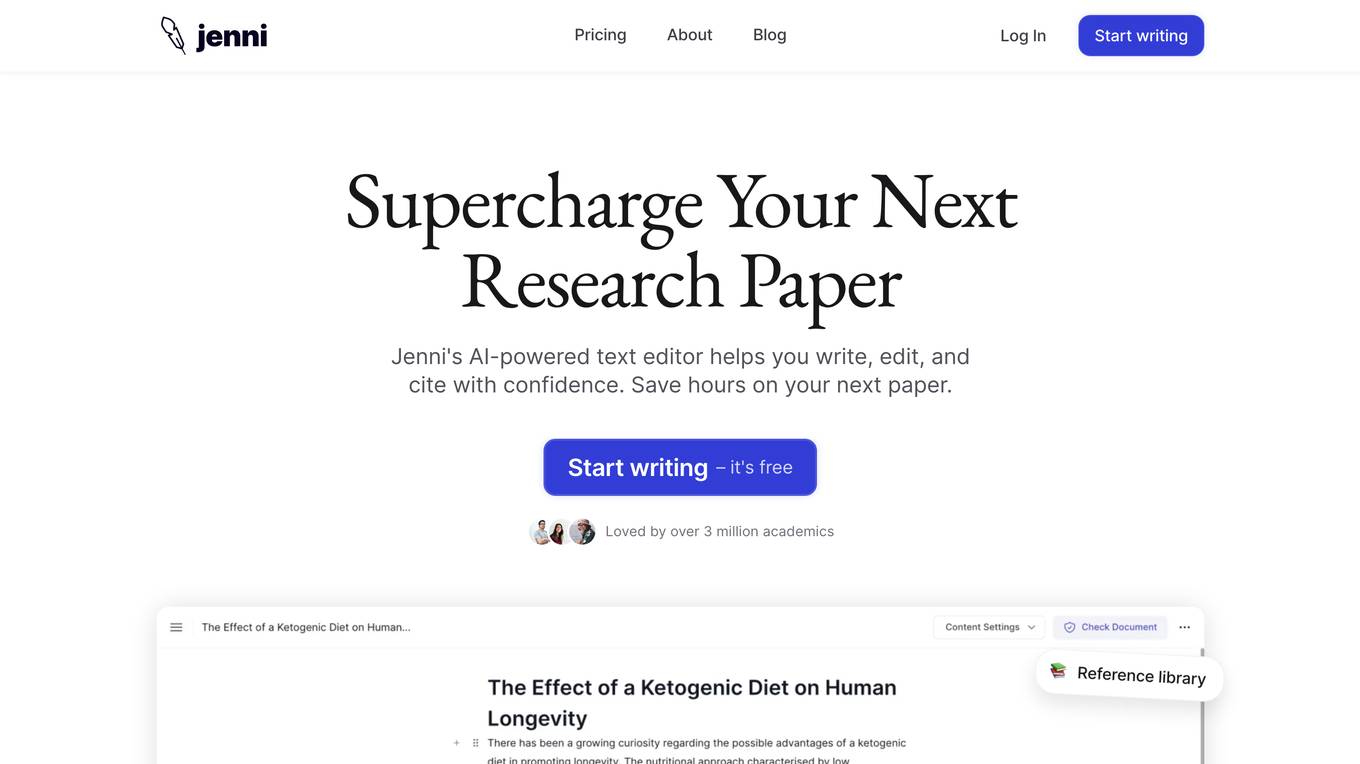
Jenni
Jenni is an AI-powered text editor that helps you write, edit, and cite with confidence. It offers a range of features to enhance your research and writing capabilities, including autocomplete, in-text citations, paraphrasing, and a reference library. Trusted by universities and businesses worldwide, Jenni has helped over 3 million academics write over 970 million words.
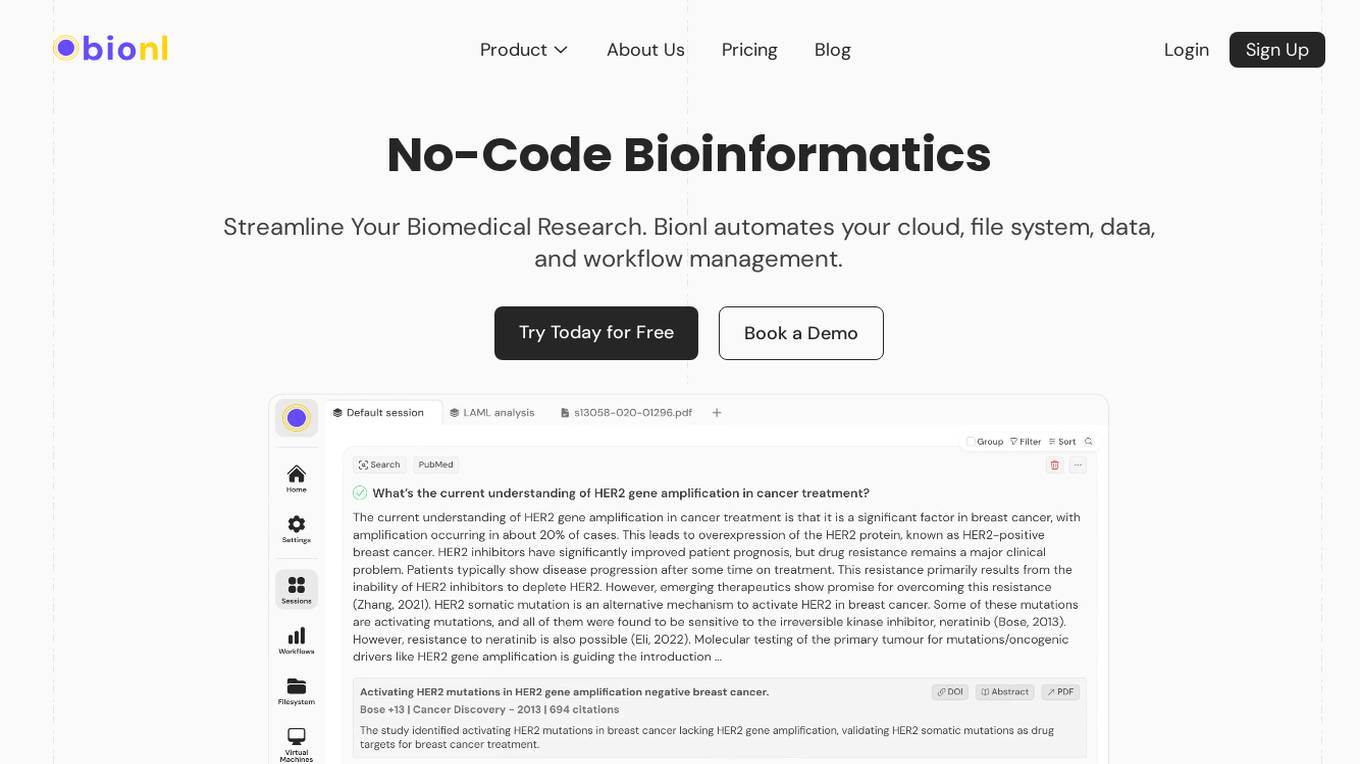
Bionl
Bionl is a no-code bioinformatics platform designed to streamline biomedical research for researchers and scientists. It offers a full workspace with features such as bioinformatics pipelines customization, GenAI for data analysis, AI-powered literature search, PDF analysis, and access to public datasets. Bionl aims to automate cloud, file system, data, and workflow management for efficient and precise analyses. The platform caters to Pharma and Biotech companies, academic researchers, and bioinformatics CROs, providing powerful tools for genetic analysis and speeding up research processes.
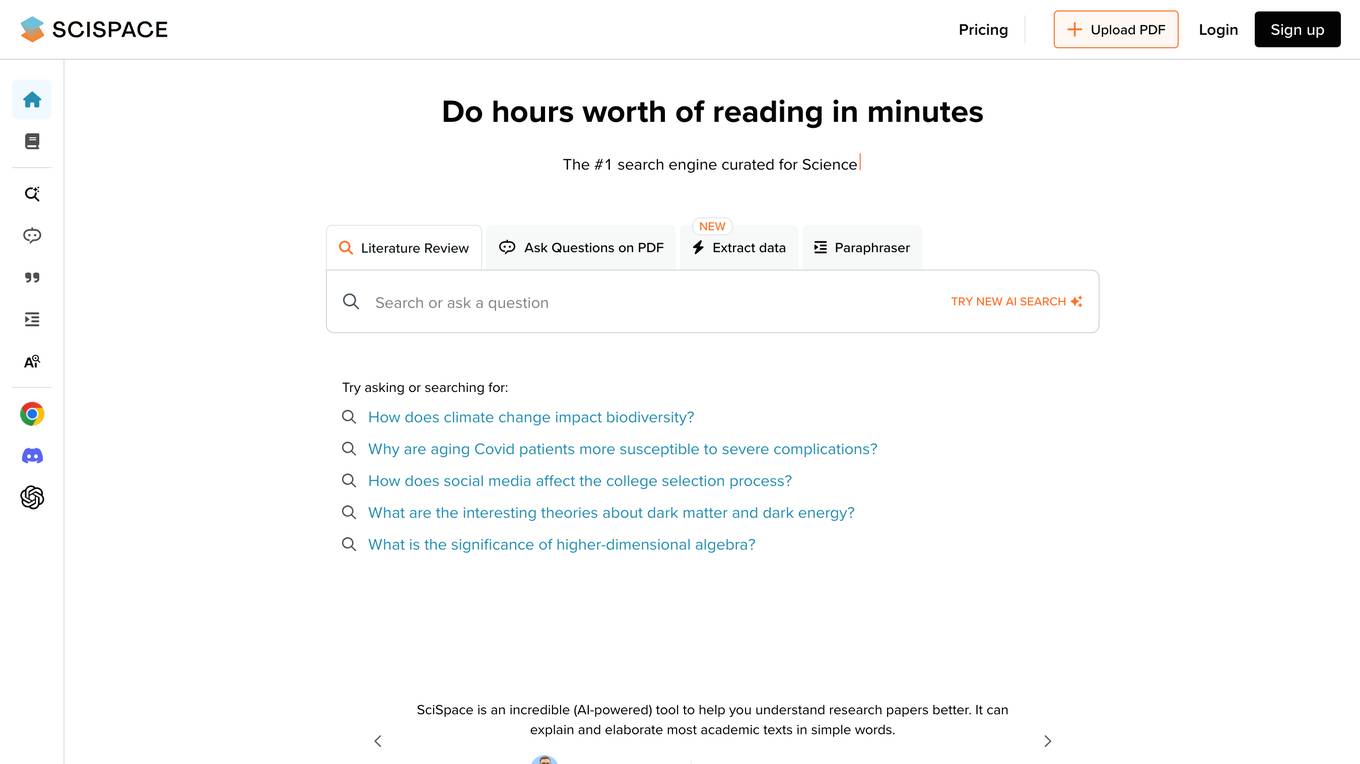
SciSpace
SciSpace is an AI-powered tool that helps researchers understand research papers better. It can explain and elaborate most academic texts in simple words. It is a great tool for students, researchers, and anyone who wants to learn more about a particular topic. SciSpace has a user-friendly interface and is easy to use. Simply upload a research paper or enter a URL, and SciSpace will do the rest. It will highlight key concepts, provide definitions, and generate a summary of the paper. SciSpace can also be used to generate citations and find related papers.
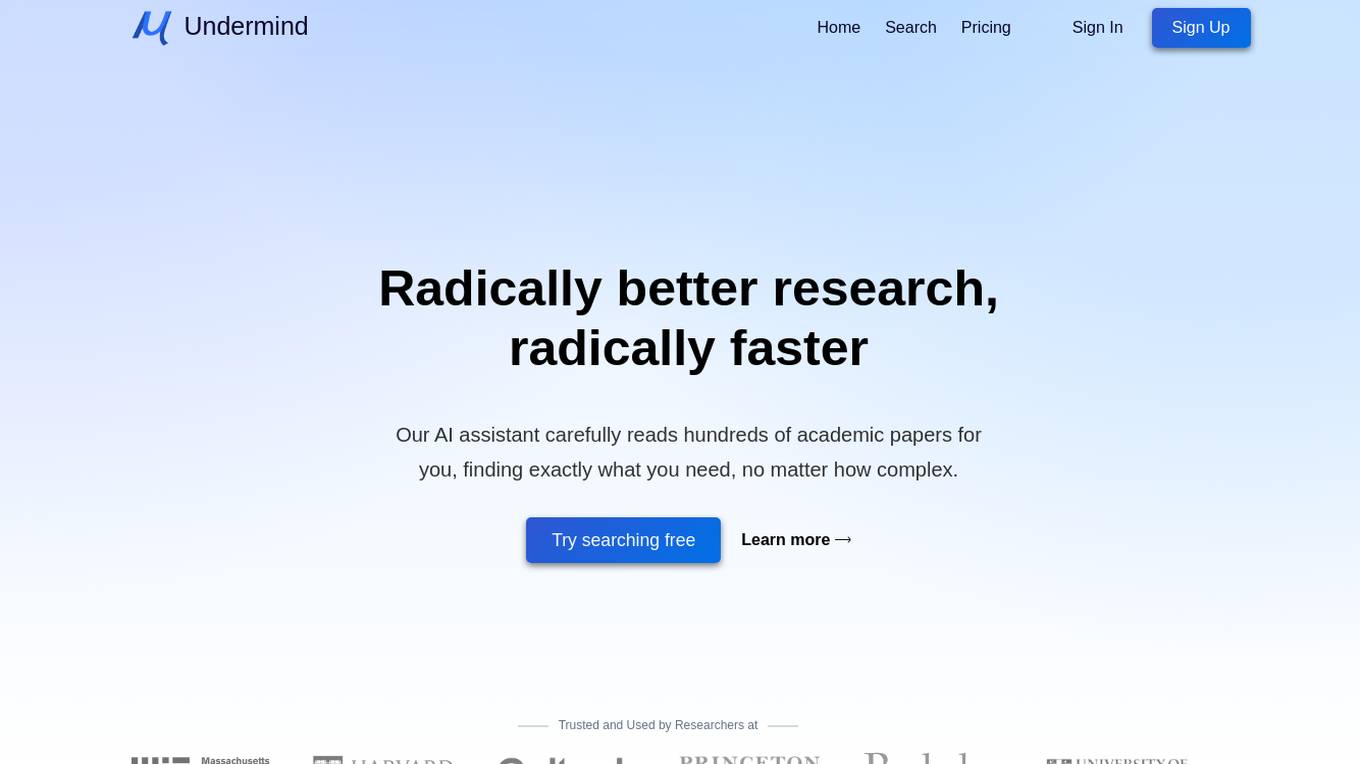
Undermind
Undermind is an AI-powered scientific research assistant that revolutionizes the way researchers access and analyze academic papers. By utilizing intelligent language models, Undermind reads and synthesizes information from hundreds of papers to provide accurate and comprehensive results. Researchers can describe their queries in natural language, and Undermind assists in finding relevant papers, brainstorming questions, and discovering crucial insights. Trusted by researchers across various fields, Undermind offers a unique approach to literature search, surpassing traditional search engines in accuracy and efficiency.
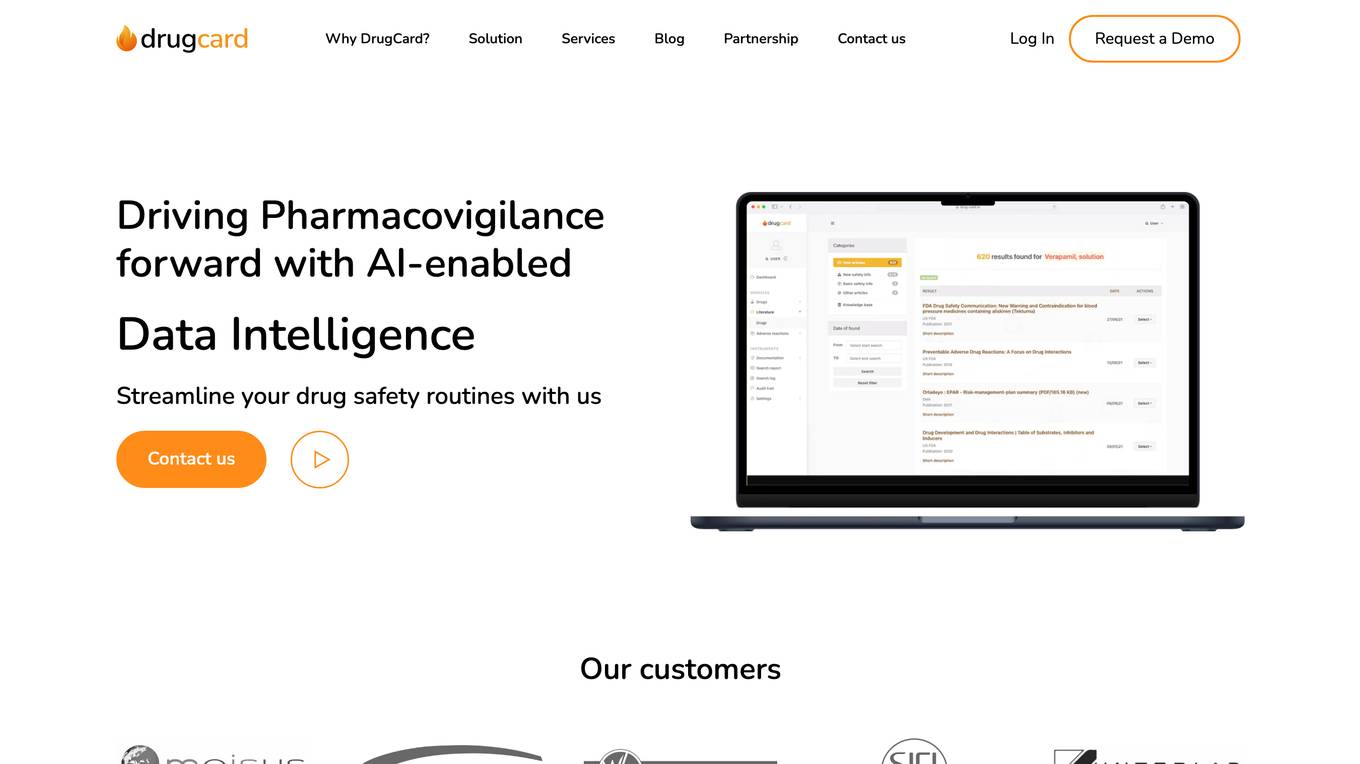
DrugCard
DrugCard is a comprehensive literature screening and pharmacovigilance solution that offers AI-driven automated pharmacovigilance services. The platform helps streamline drug safety routines by providing continuous and regular monitoring, traceable and transparent data, accurate and complete information, and scalability to new markets. DrugCard supports over 100 languages, covers 112+ countries, and monitors 2200+ local medical journals, resulting in a 60% time savings compared to manual approaches. The platform is designed for Contract Research Organizations (CROs), Marketing Authorization Holders (MAHs), and freelancers in the pharmaceutical industry.
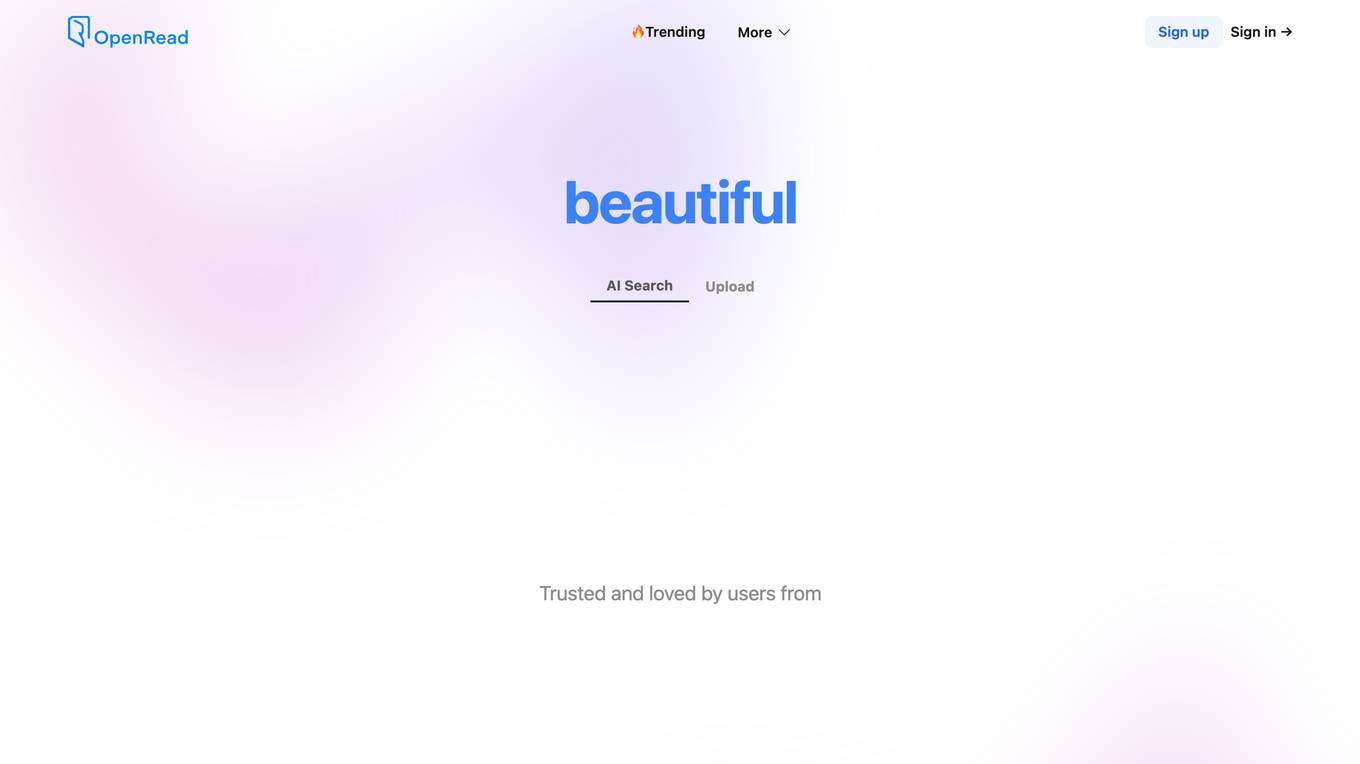
OpenRead
OpenRead is an AI-powered research tool that helps users discover, understand, and organize scientific literature. It offers a variety of features to make research more efficient and effective, including semantic search, AI summarization, and note-taking tools. OpenRead is designed to help researchers of all levels, from students to experienced professionals, save time and improve their research outcomes.
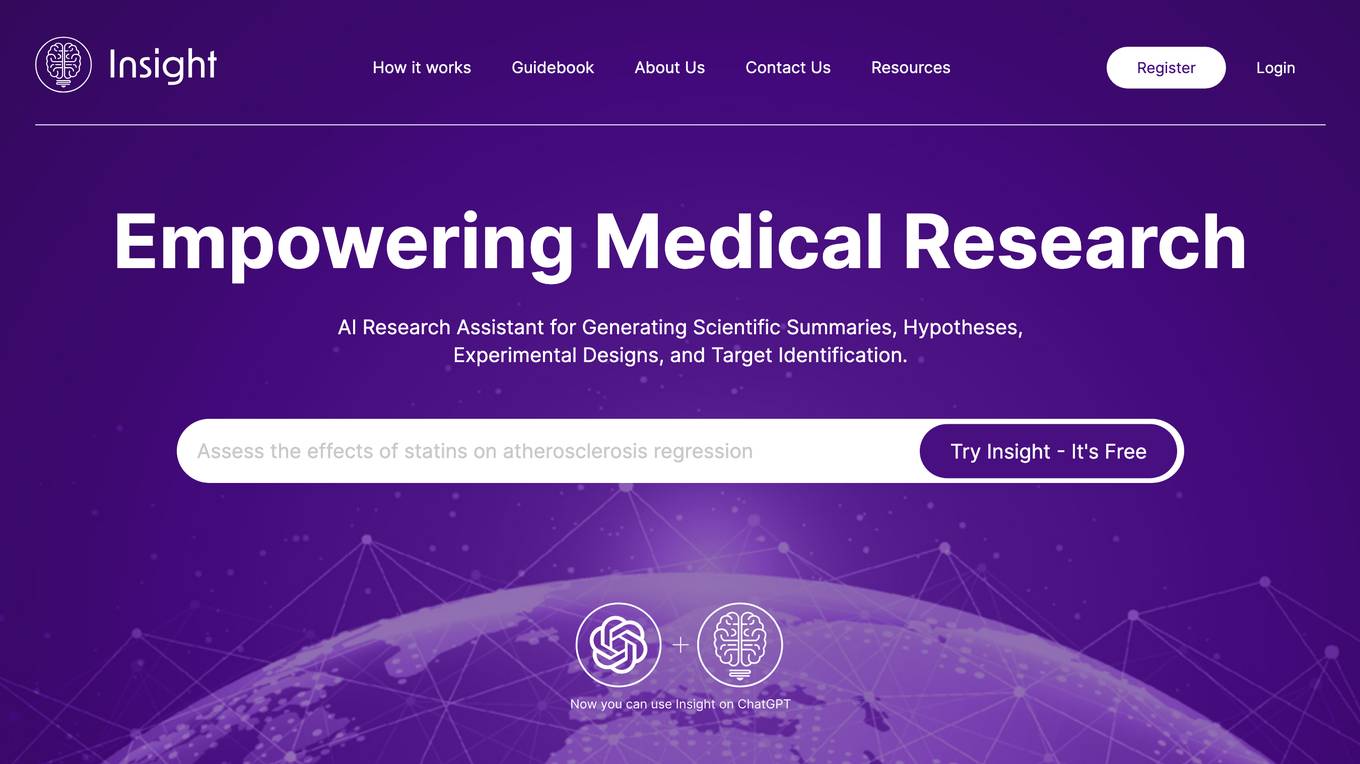
Insight
Insight is an AI-powered medical research tool that serves as a research assistant for generating scientific summaries, hypotheses, experimental designs, and target identification. It empowers scientists to navigate literature, formulate hypotheses, and design experiments by utilizing peer-reviewed databases to provide reliable outputs. With integrated features like NIH PubMed access, NIH Reporter insights, and MYGENE & MYVARIANT deep dives, Insight streamlines the research process and accelerates discoveries in the medical field.
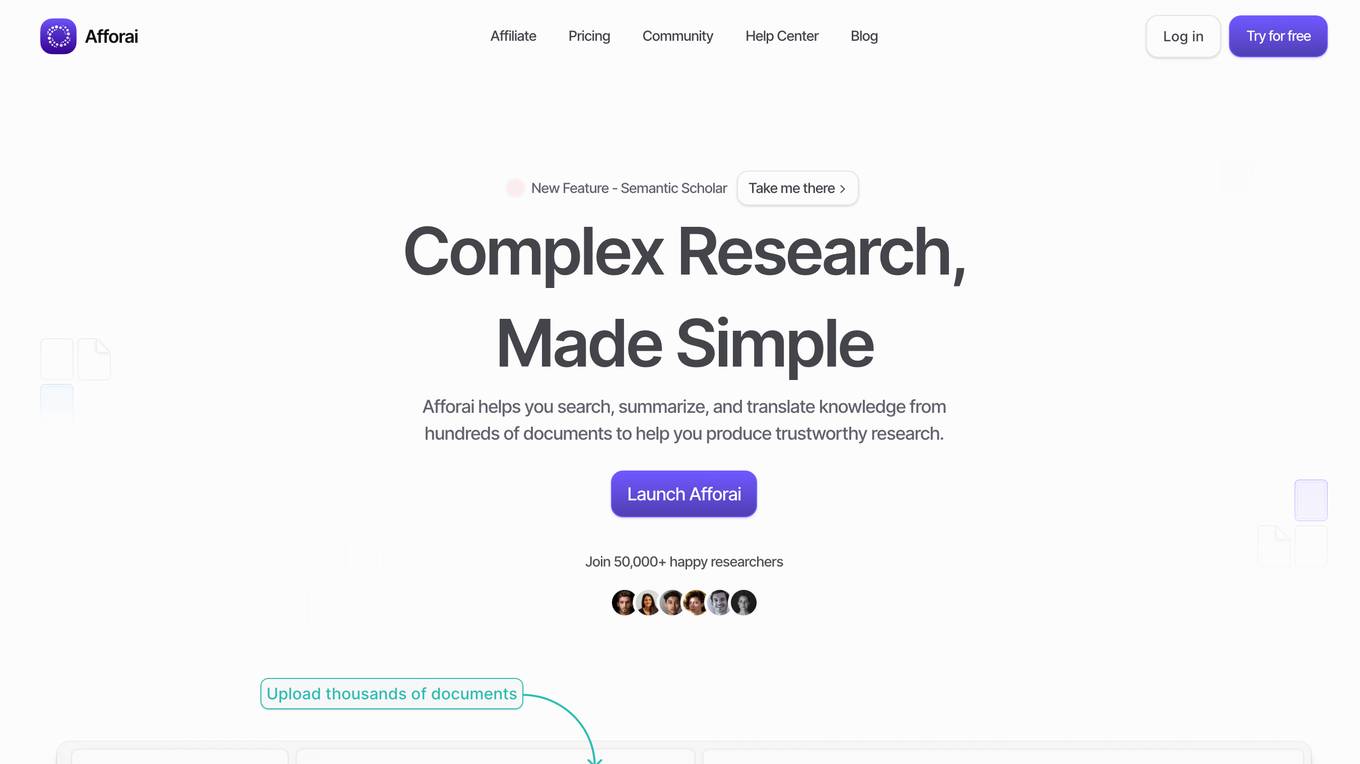
Afforai
Afforai is a powerful AI research assistant and chatbot that serves as an AI-powered reference manager for researchers. It helps manage, annotate, cite papers, and conduct literature reviews with AI reliably. With features like managing research papers, annotating and highlighting notes, managing citations and metadata, collaborating on notes, and supporting various document formats, Afforai streamlines academic workflows and enhances research productivity. Trusted by over 50,000 researchers worldwide, Afforai offers advanced AI capabilities, including GPT-4 and Claude 3.5 Sonnet, along with secure data handling and seamless integrations.
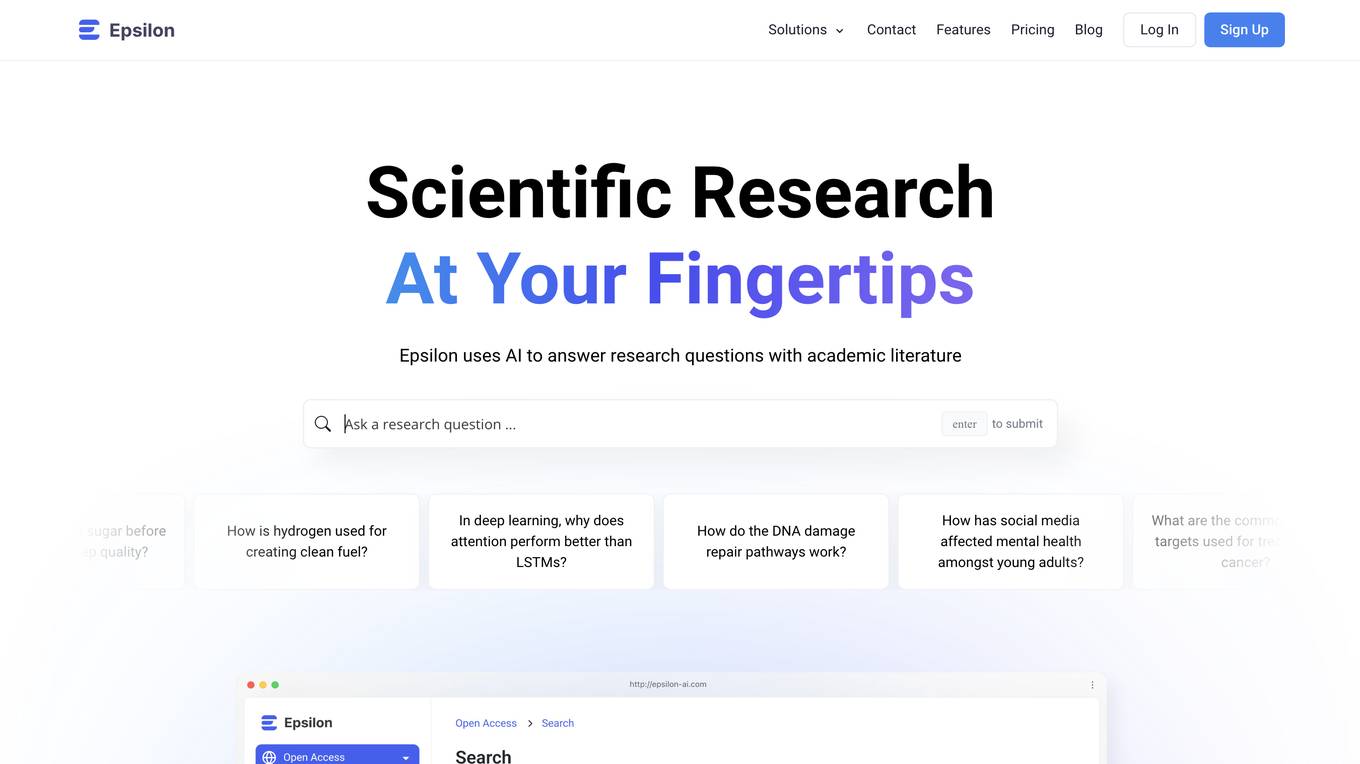
Epsilon
Epsilon is an AI search engine designed for scientific research solutions. It helps researchers find evidence, citations, and relevant information from over 200 million academic papers. Epsilon can summarize passages, group search results, extract key information from multiple papers, and provide comprehensive summaries. Trusted by over 30,000 researchers worldwide, Epsilon is a reliable tool for conducting literature reviews, drafting proposals, and executing research projects.

Systematic Review Tools
Systematic Review Tools is an AI-powered research workflow platform that offers a comprehensive suite of tools for efficient systematic literature reviews. The platform streamlines the research process by providing automated search strategies, efficient screening, customizable workflows, risk of bias assessment, evidence tables generation, and exportable reports. It harnesses the power of AI and automation to revolutionize the research process, making it faster, more accurate, and more efficient.
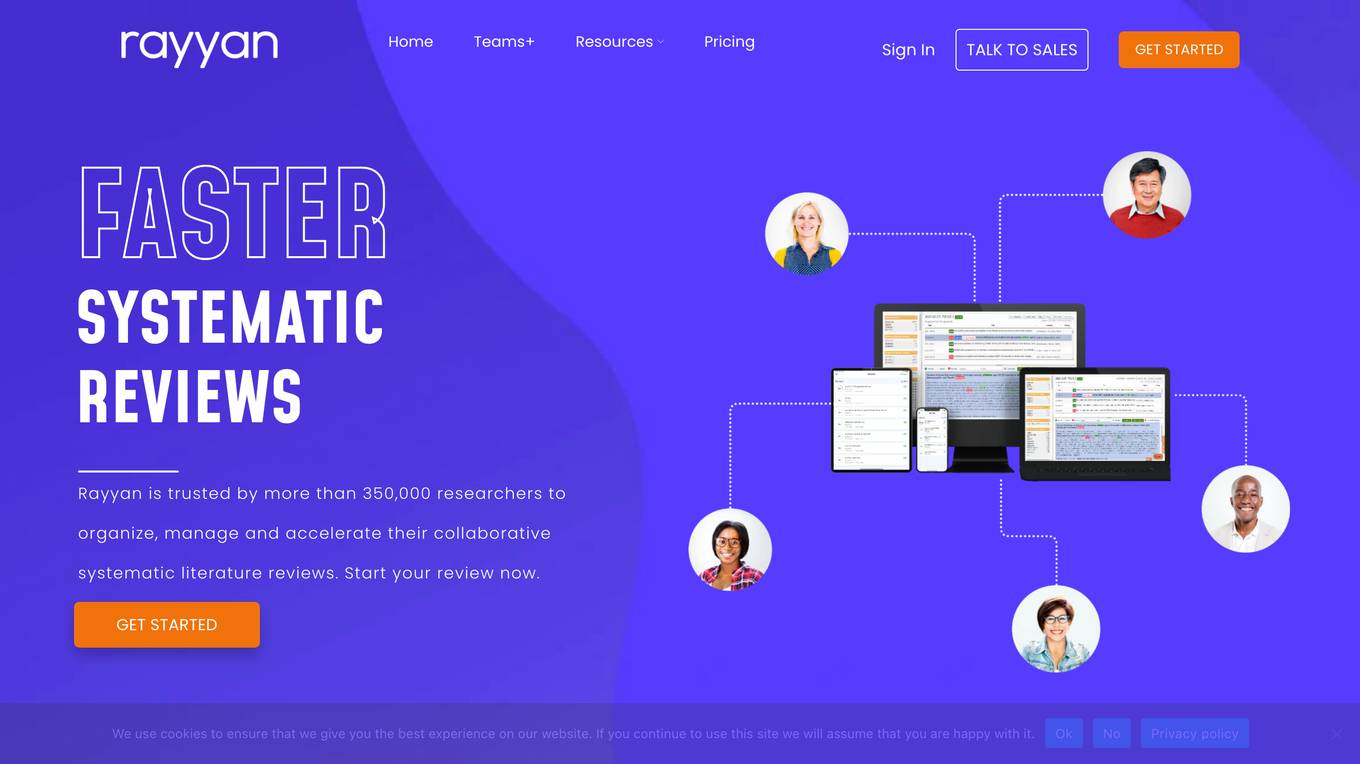
Rayyan
Rayyan is an intelligent systematic review tool trusted by over 500,000 researchers worldwide. It helps users organize, manage, and accelerate collaborative systematic literature reviews. Rayyan empowers users to work remotely and collaborate with distributed research teams, offering membership packages with onboarding, training, and priority support. The tool is designed to understand language, learn from user decisions, and facilitate quick navigation through systematic reviews. Rayyan also provides solutions for organizations and businesses to streamline research processes and save valuable researcher time.
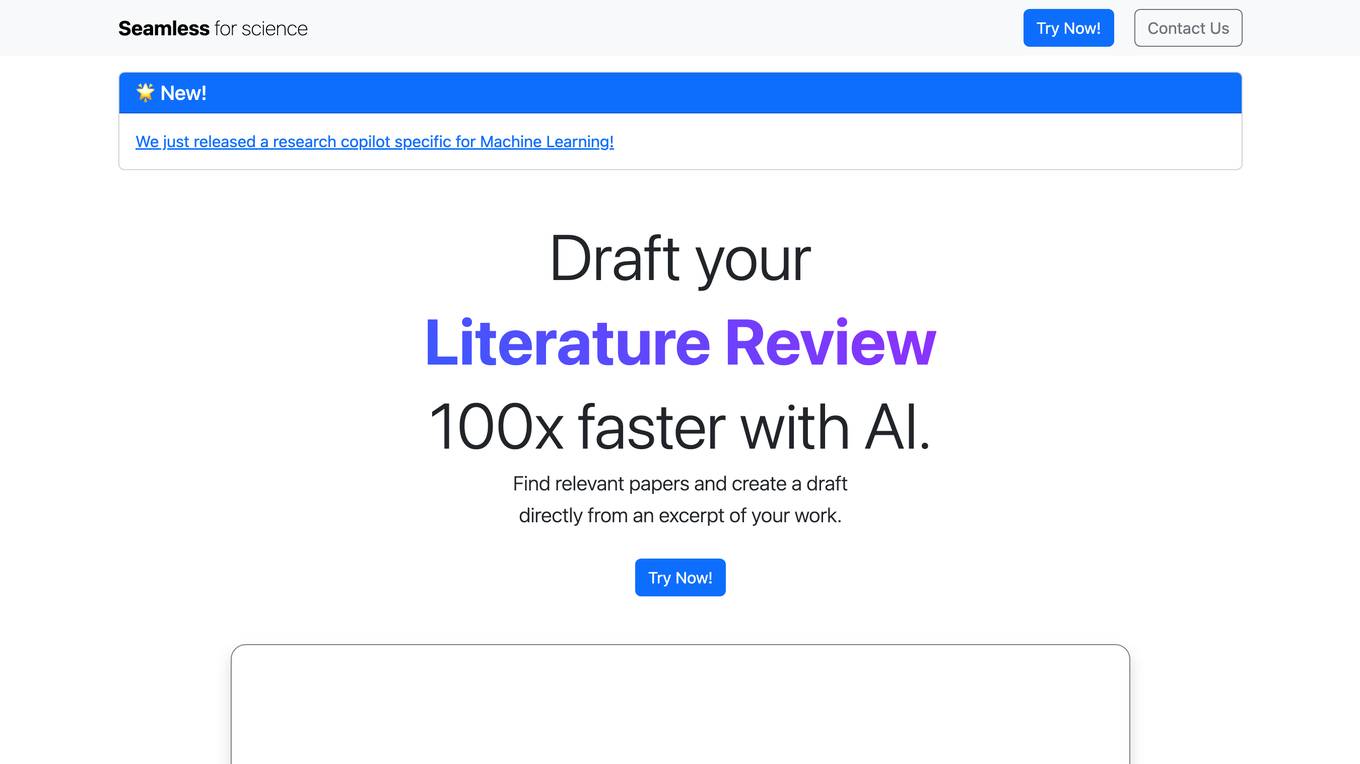
Seamless
Seamless is an AI-powered literature review tool and scholarship search assistant designed to revolutionize the academic journey for students and researchers. It utilizes advanced AI technology to generate comprehensive literature reviews, provide AI-driven scholarship search and application tools, and offer essay writing assistance. With Seamless, users can accelerate their research process, find relevant papers, apply for scholarships, and receive real-time feedback on their writing. The application aims to redefine the creation of literature reviews through the seamless integration of AI technology.
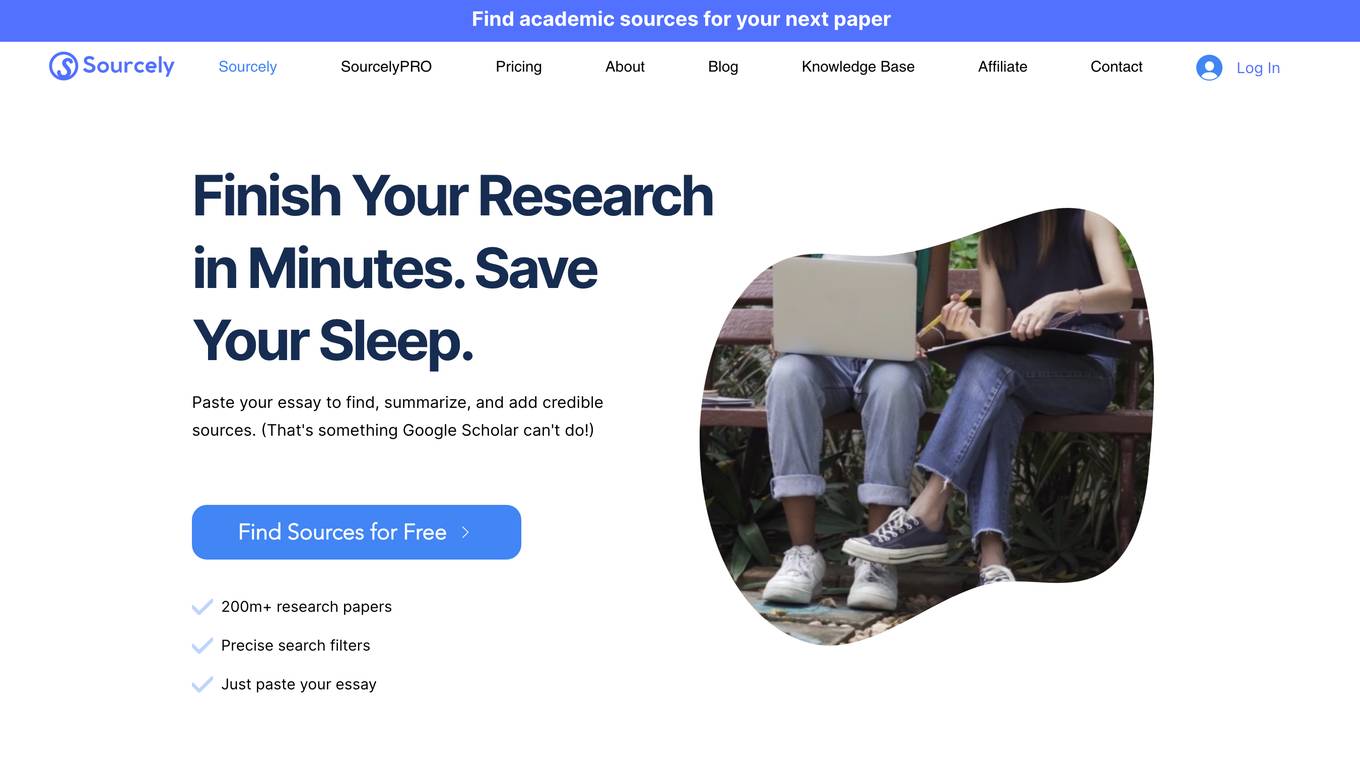
Sourcely
Sourcely is an AI-powered academic search assistant that helps users find, summarize, and add credible academic sources. It offers access to over 200 million research papers, advanced search filters, targeted citations, free PDF downloads, citations library, credible summaries, export references, advanced filters, deep academic search, and the ability to chat with sources. Sourcely streamlines the research process, saves time, and enhances the quality of academic work by automating the search for appropriate citations.
1 - Open Source AI Tools
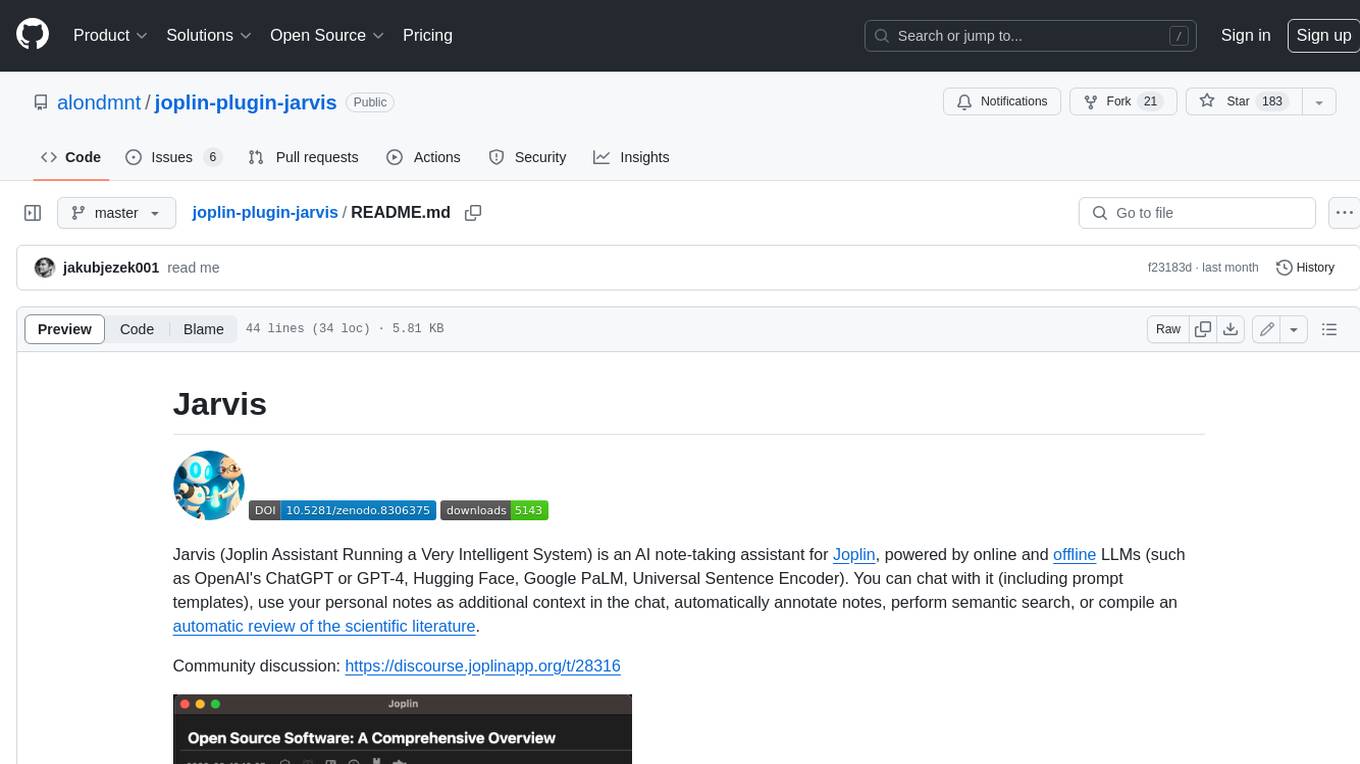
joplin-plugin-jarvis
Jarvis is an AI note-taking assistant for Joplin, powered by online and offline LLMs (such as OpenAI's ChatGPT or GPT-4, Hugging Face, Google PaLM, Universal Sentence Encoder). You can chat with it (including prompt templates), use your personal notes as additional context in the chat, automatically annotate notes, perform semantic search, or compile an automatic review of the scientific literature.
20 - OpenAI Gpts
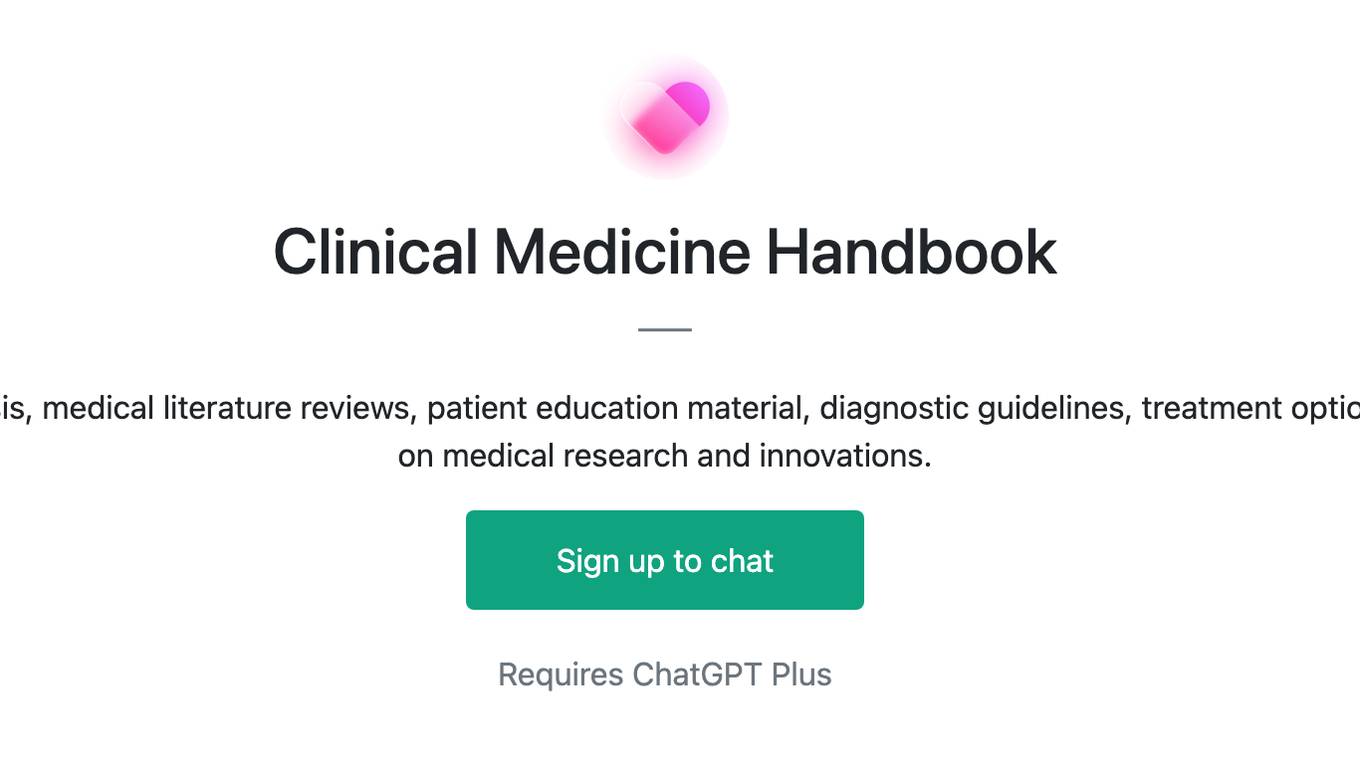
Clinical Medicine Handbook
I can assist doctors with information synthesis, medical literature reviews, patient education material, diagnostic guidelines, treatment options, ethical dilemmas, and staying updated on medical research and innovations.
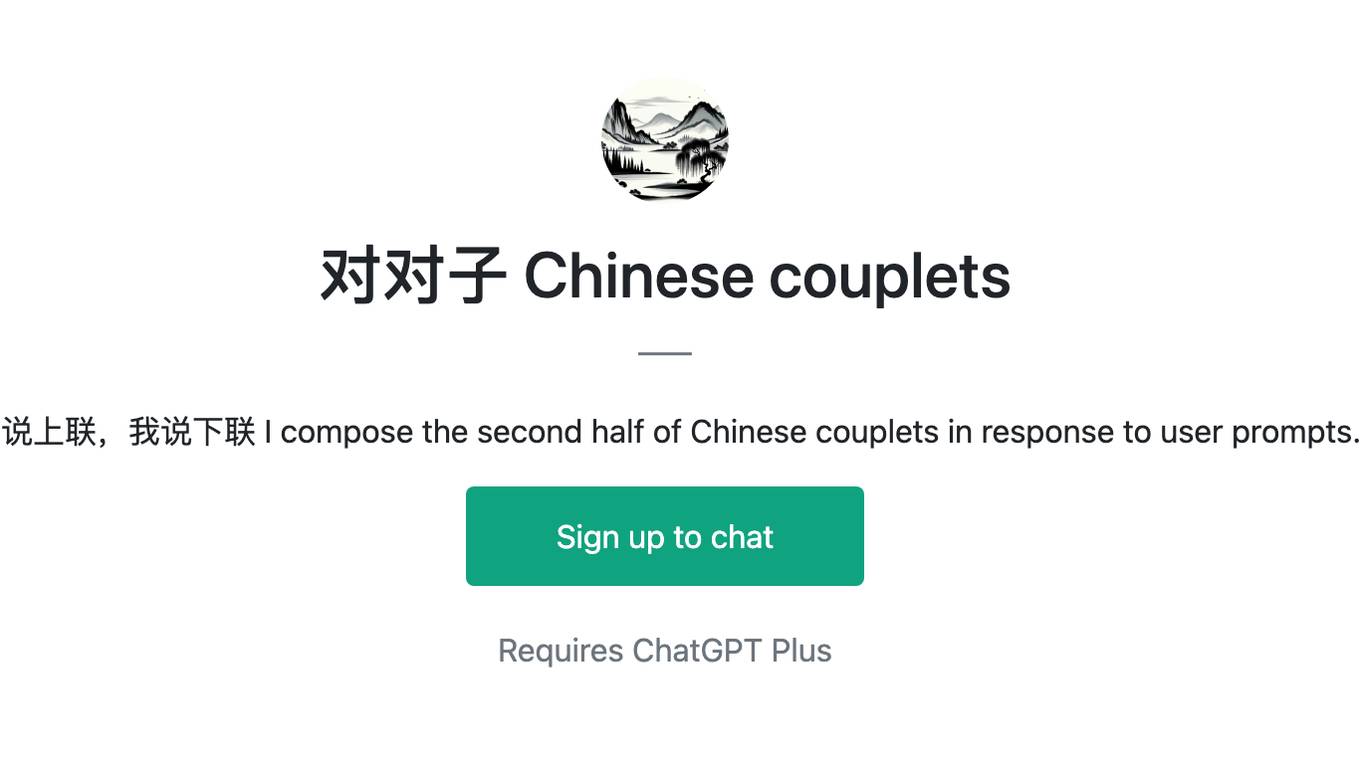
对对子 Chinese couplets
你说上联,我说下联 I compose the second half of Chinese couplets in response to user prompts.
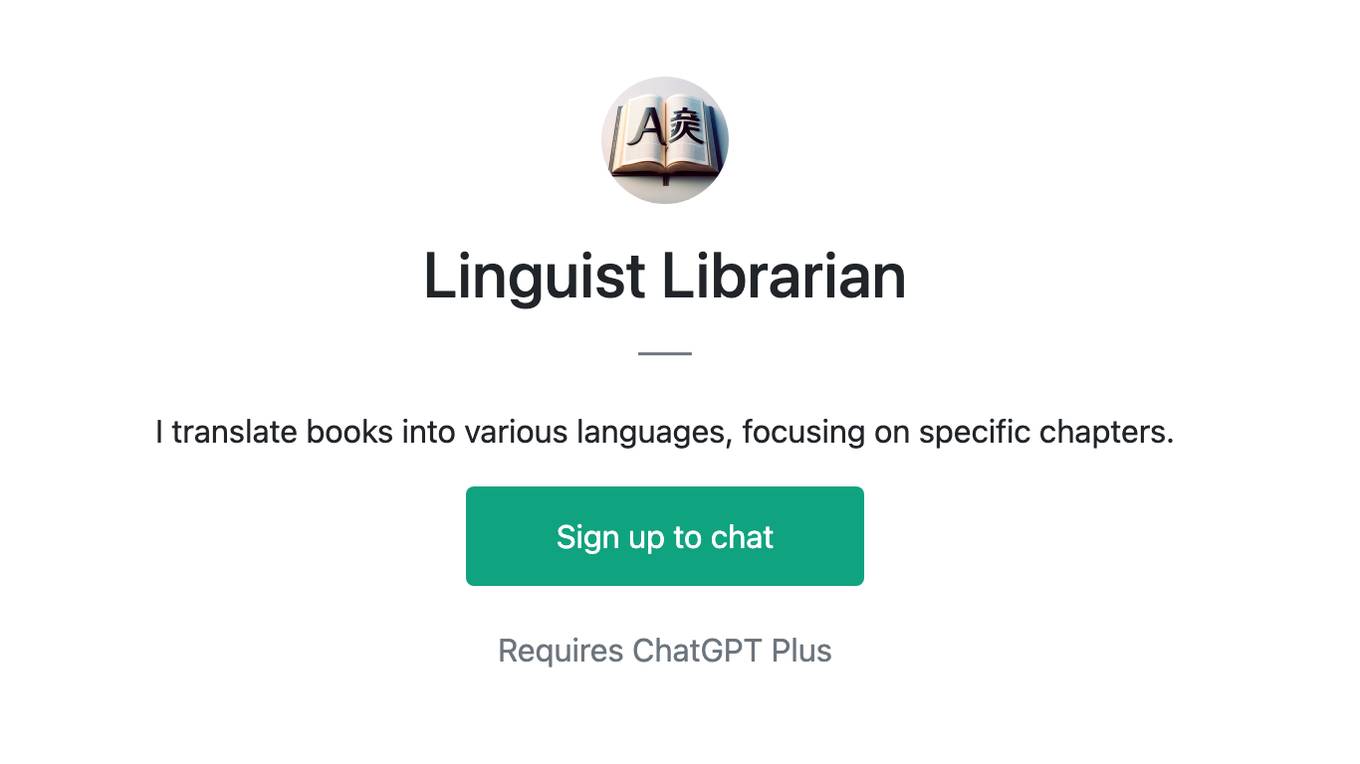
Linguist Librarian
I translate books into various languages, focusing on specific chapters.
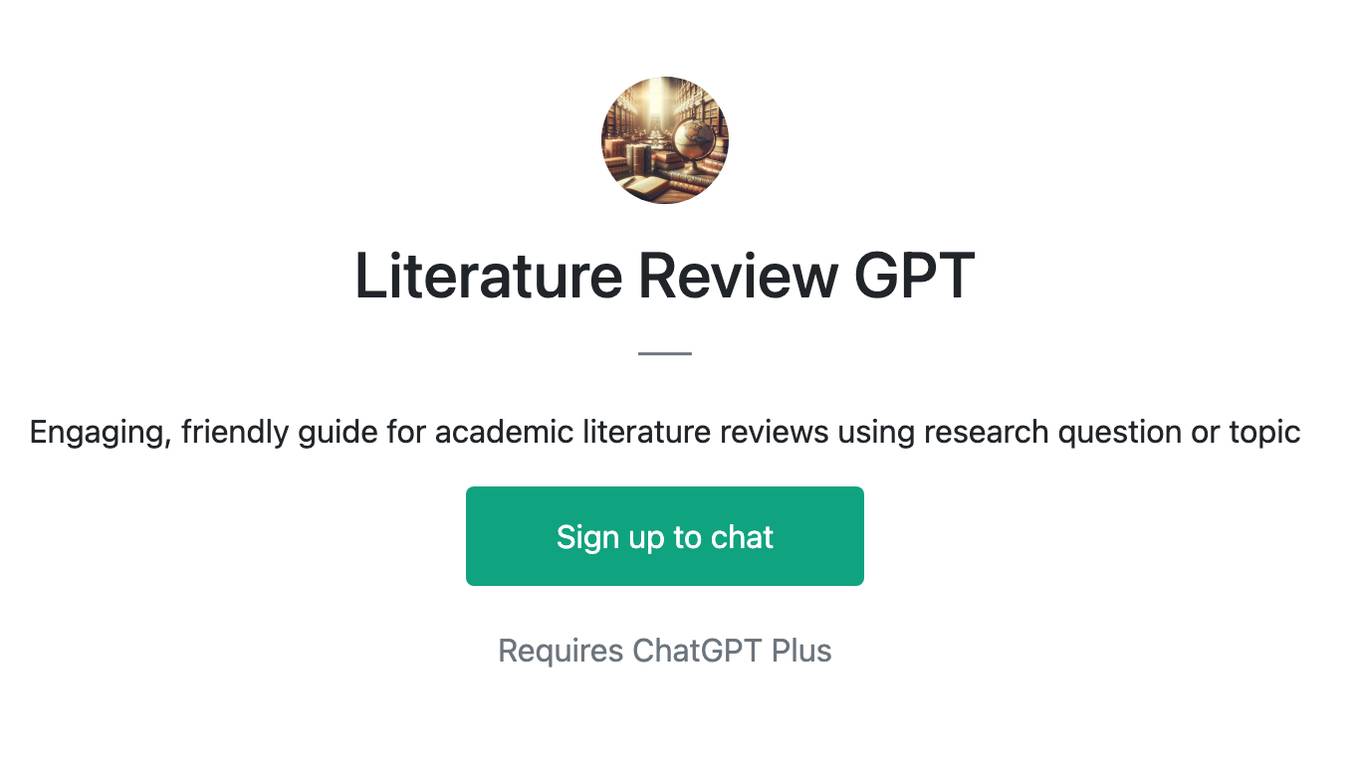
Literature Review GPT
Engaging, friendly guide for academic literature reviews using research question or topic
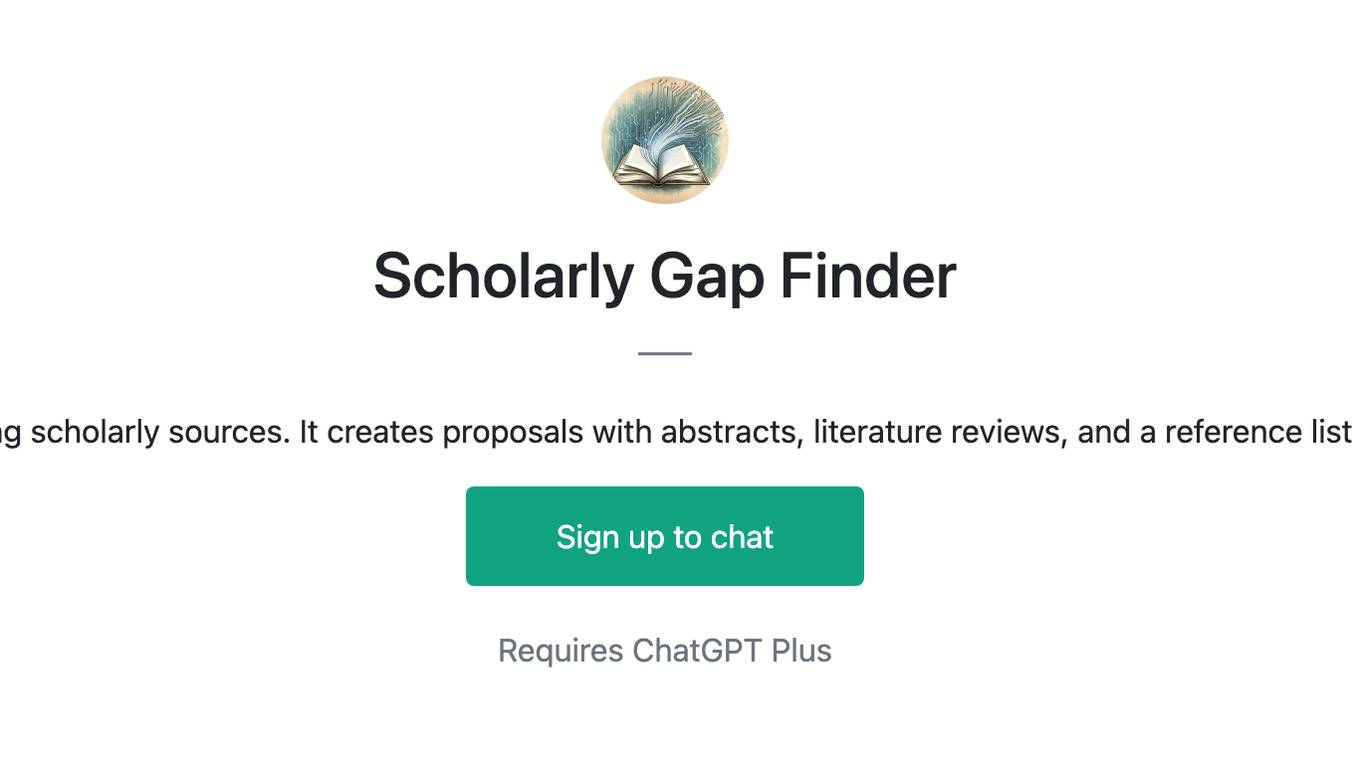
Scholarly Gap Finder
SGF identifies research gaps using scholarly sources. It creates proposals with abstracts, literature reviews, and a reference list tailored for academic research.
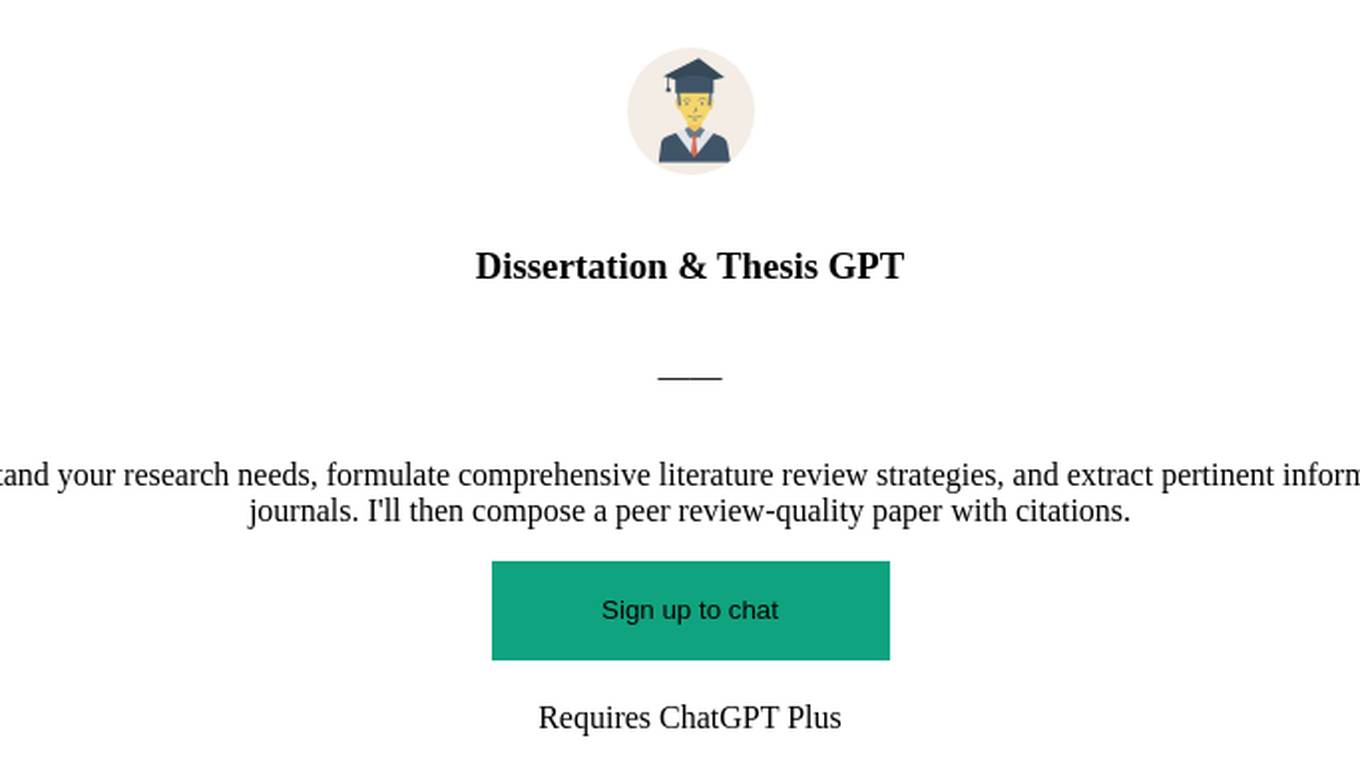
Dissertation & Thesis GPT
An Ivy Leage Scholar GPT equipped to understand your research needs, formulate comprehensive literature review strategies, and extract pertinent information from a plethora of academic databases and journals. I'll then compose a peer review-quality paper with citations.
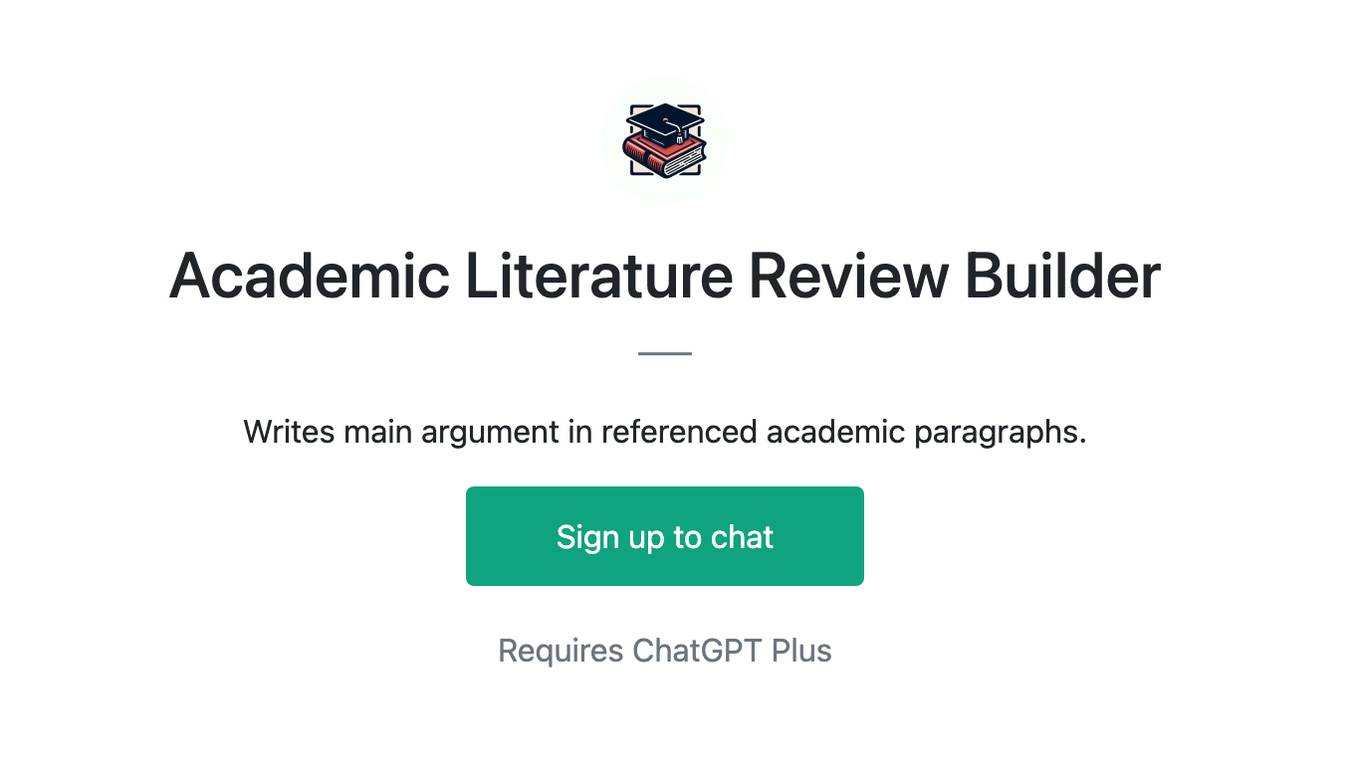
Academic Literature Review Builder
Writes main argument in referenced academic paragraphs.
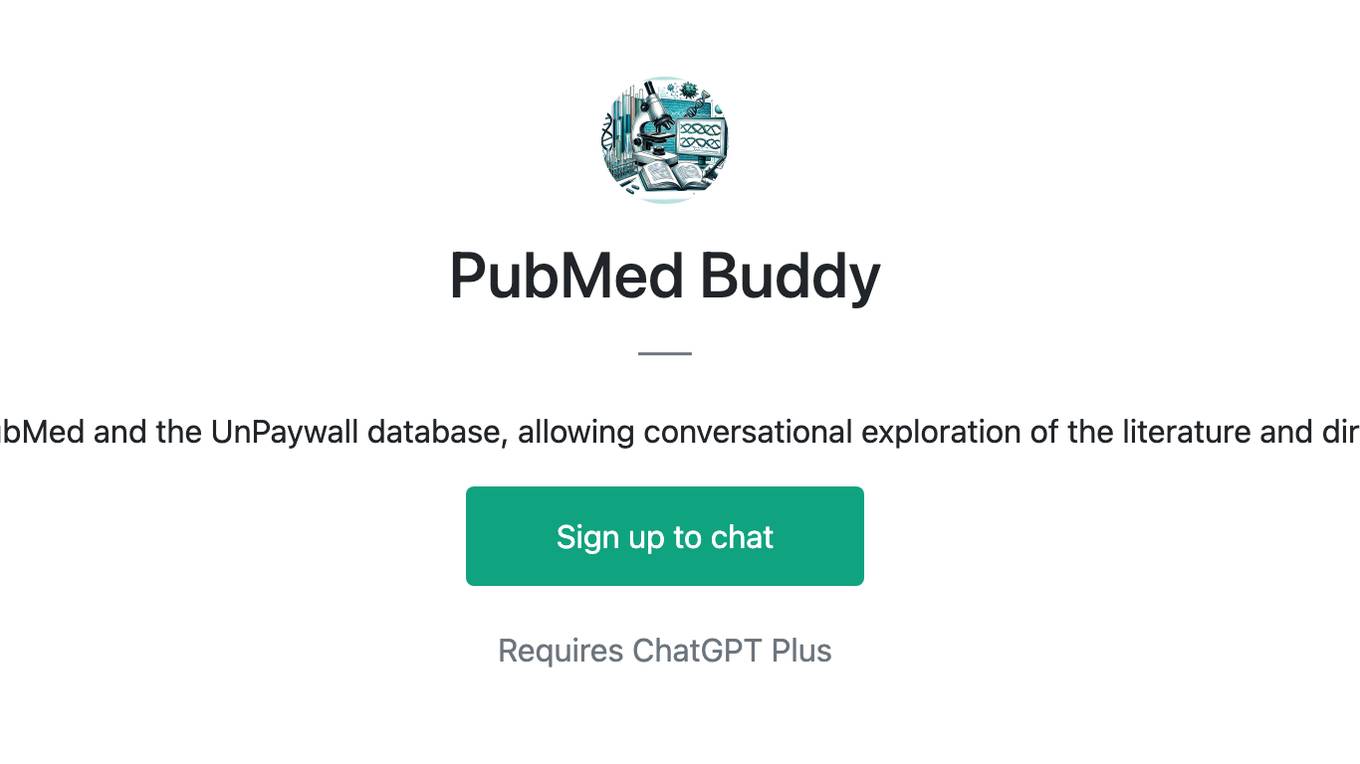
PubMed Buddy
This GPT has access to both PubMed and the UnPaywall database, allowing conversational exploration of the literature and direct access to full-text articles
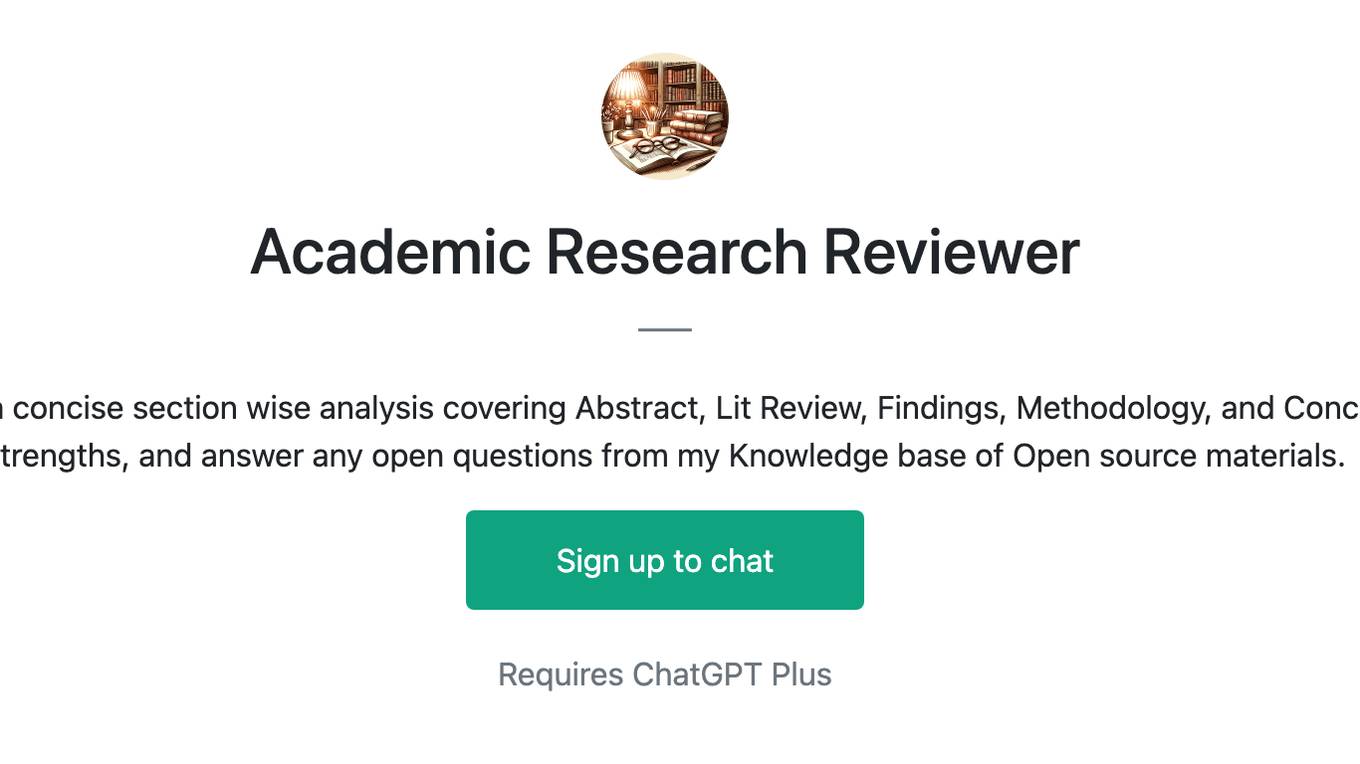
Academic Research Reviewer
Upon uploading a research paper, I provide a concise section wise analysis covering Abstract, Lit Review, Findings, Methodology, and Conclusion. I also critique the work, highlight its strengths, and answer any open questions from my Knowledge base of Open source materials.
